A list of 100 books and documents that have influenced the world looks like this
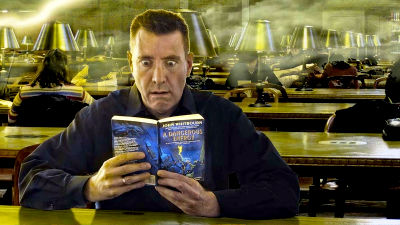
by Flickr: David Blackwell.'s Photostream
It is extremely rare for a book to be read for decades or hundreds of years, but there are still books that are still being read. It's not 'recommended for light reading,' but it's a book chosen from the perspective of 'having a major impact on human history,' from the Bible and Shakespeare to the unfamiliar ones such as 'The Story of Belzebab's Grandson.' & Documents are compiled by Martin Seymour Smith's The 100 Most Influential Books Ever Written . As for overseas book reviews , this list itself is a good intro / entrance to the humanities, so many of them should be the original books, and if you get these 100 books and read them through. Not only will you get a sense of accomplishment for the seed, but it will also bring you a different value to yourself.
The 100 Most Influential Books Ever Written by Martin Seymour-Smith --The Greatest Books
https://thegreatestbooks.org/lists/45
◆ 01: 1984 [New translation]: Translated by George Orwell / Kazuhisa Takahashi

A totalitarian near future dominated by the party led by <Big Brother>. Winston Smith was a party member of the Department of Truth's Records Bureau, whose job was to tamper with history. However, he was dissatisfied with the system that forced him to give perfect obedience. At one point, when he met the free-spirited beauty Julia, he became attracted to the anti-government underground activities that are rumored to have been organized by a legendary traitor.
◆ 02: Aeneid: Virgil / Translated by Masatoshi Sugimoto

Virgil (70-19 BC), the heyday of Rome, worked on 'Aeneid' in the last decades, and it is already the best Latin epic to compare with Greek 'Iliad' and 'Odyssey'. It had a good reputation. It is said that the main character, Aeneas, has the remnants of Augustus, the power of the time, and this work, which was incomplete due to the death of the author, was published with the strong intention of Augustus.
However, the fact that Aeneid, which became a bestseller as soon as it was published, has been loved for a long time beyond the Renaissance period of far later, cannot be explained simply by receiving a strong recommendation from a powerful person. Rather, it was simply because this work had abundant appeal as a 'reading material' that accurately grasped the problems of human beings at the turning point of history and always acquired new readers. For example, Aeneas experiences a tragic encounter with Queen Dido of Cartago during a long journey from Troya to Italy, but the poet turns the protagonist to such a sensitive woman, not a witch or a monster. It can be said that the moment we met, a new literary horizon focused on the heart of an individual was opened. While preserving the outline of the epic story of 'the founding of Rome,' the work greatly expands the poet's territory by portraying the disasters caused by human groups such as war and the people suffering under the pressure of society. It was.
In Western Europe, where Aeneid was read for a long time, it was one of the important sources of spiritual culture that complemented and relativized the Bible. The Roman sentiment that overflows there, the Roman beauty reflected in the words, and the world of the story that revives every time you read it will surely continue to fascinate readers.
However, in Japan, under the influence of the theory that 'Aeneid' is 'imitation of Homer', the unique and unrivaled taste of the work itself is now compared to the name of the title. Isn't it the current situation that is not well known? This translation tries to solve this 'misunderstanding' and make 'Aeneid' our classic, so that modern people can truly enjoy it. (Masato Sugimoto)
◆ 03: Allegorical Expositions of the Holy Laws: Philo of Alexandria
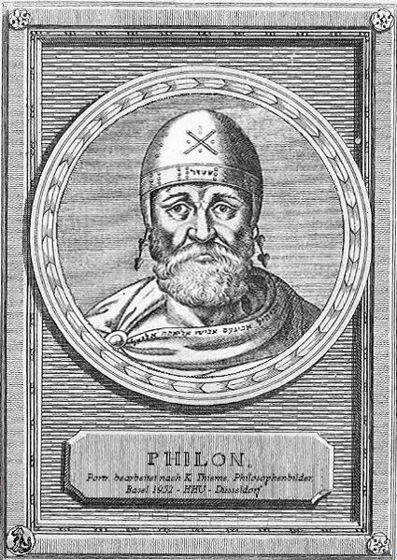
Philo of Alexandria (Latin: Philon Alexandrinus, Hebrew: יוסף בןפילון האלכסנדרוני, 20/30 BC? The rich knowledge of Greek philosophy was applied for the first time to the interpretation of Jewish thought. Philo's achievements with the use of Greek philosophy were not accepted by Jews, but rather by early Christians and became one of the roots of Christian thought. rice field.
In addition, there is ' Introduction to Philo of Alexandria ' as an introductory book.
◆ 04: The Analects: Confucius / Translated by Osamu Kanaya

The following reviews will be very helpful.
It is thanks to this book that I was able to read through the analects. Since I was a student, I picked it up many times and wasn't interested in it at all. It seemed like an old book. Perhaps the other students in the Department of Philosophy were swallowed up by the atmosphere, as they were all grateful for existentialism, structuralism, and French and German philosophy.
However, as I got older, I didn't like the fact that Western philosophy couldn't help me to live. At that time, when I read Tomofusa Kure's 'The Analects of Modern People', my ally for 'The Analects' changed, and I thought that it was a book written by a revolutionary at that time, not a sermon. I was noticed.
As I became able to read more easily and in my own way, I came across sentences that I could sympathize with more and more, and I couldn't let go of them. As Mr. Shizuka Shirakawa says, the view that it is a book of losers may be comfortable from what I am now.
I don't really know if I could taste it because I was middle-aged, or because I could read it because I experienced the setbacks of my life, but it's full of words that reach deeper in my heart than various books of the world. I knew that it was done. I am grateful that this is also because, as Professor Kanaya said, he has improved the 'The Analects' as a translation style.
◆ 05: An Essay Concerning Humanity <Volume 1>: Translated by John Locke / Uichiro Kato

It is a book that is also translated as 'human intelligence theory', and the contents are as follows according to Wikipedia.
The central subject of this book is human knowledge. It is an important issue to clarify to what extent human knowledge can be certain, and Locke is studying this issue in an introspective way. By doing this, Locke attempts to clarify what human understanding is suitable for and what is not.
In other words, the purpose of this book, 'Theory of Human Enlightenment,' is not to clarify everything, but to know what is related to human behavior. Locke observes enlightenment by identifying the limits of knowledge as a basic perspective. Then, the origin of the idea, the nature and scope of the knowledge that the intellect gains from the idea, and the source of the belief and the view are examined in order.
◆ 06: Population theory: Malthus / Etsunori Saito Translated

As a content review , the following is very easy to understand.
The original title of this book is as follows in the second and subsequent editions.
'An Essay on the Principle of Population, or, a View of its past and present effects on human happiness: with an inquiry into our prospects respecting the future removal or mitigation of the evils which it occasions.'
If I translate
'A essay on the principles of population, or views on past and present impacts on human well-being:
From a prospective study of future elimination and mitigation of vices that have an impact on human well-being. '
About the principle of population
Malthus makes two basic premises that are self-evident.
・ First, food (living resources) is necessary for the survival of humankind.
・ Second, there is always lust between the opposite sex.
The following considerations can be derived from these two assumptions.
If the population is not restricted, it will increase geometrically, but living resources will increase only arithmetically.
Because the increase in population is unequal greater than the capacity of the land to produce living resources
Then, poverty inevitably appears there.
Continued population growth leads to a continuous shortage of living resources and faces serious poverty problems.
Due to the large population, workers are oversupplied and living resources are undersupplied.
Population growth will stagnate here because it is difficult to get married or support a family in this situation.
For the first time, it will be possible to gradually increase the supply of living resources by promoting new businesses with cheap labor.
The balance between the initial population and living resources will be restored.
In society, the history of this kind of population is overturned.
However, this repetition may someday get stuck.
Because the earth is finite.
The poor are poor because of the poor. Isn't that the case?
Please let me know.
◆ 07: Chronicle <above> From Tiberius to Nero: Tacitus / Translated by Kichinosuke Kunihara
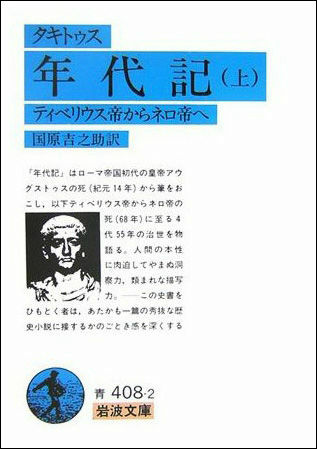
The following reviews are easy to understand what the content is.
A history book by Tacitus, who is said to be the greatest historian of ancient Rome, depicting the history from Emperor Tiberius, the second emperor of the Roman Empire, to Emperor Nero, the fifth.
The writing of Tacitus, who is also famous as a famous literary artist, is full of presence, and it seems that a turbulent era is approaching.
Tacitus mercilessly blames the violence and immorality of Nero, who can be said to be synonymous with tyrants, and the other four, and laments the work of the Senators who followed them.
Even if the pros and cons of that historical judgment are set aside for the time being, the Tacitus clause does not make you bored with what you read.
Unfortunately, there are many missing parts. In particular, it is very disappointing that it is unclear how the final scene of Emperor Nero was depicted.
It's a must-read book for anyone interested in Roman history, but it still requires some background knowledge. For those who want to know more about Roman history.
◆ 08: Translated by the original text Avesta: Translated by Gikyo Ito
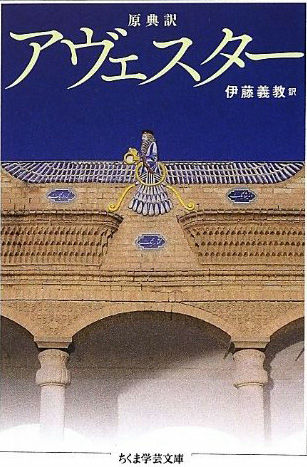
Zoroastrianism, a fire worship, was widely spread to Central Asia by the Sogdo people of trade through the Silk Road. The scripture 'Avesta' is considered to be the oldest religious scripture in the world, and consists of 'Yasuna (ritual book)', 'Weedeu (devil book)', and 'Yasht (hymn to the gods)'. This book is the only Japanese translation that has been carefully selected and translated from the original text, focusing on the rhyme in Yasuna, which is said to be the most important. While Zoroastrianism is also worshiped in Chang'an, the capital of the Tang dynasty, it is said that the ideas such as 'good and evil dualism' and 'monotheism' had a great influence on Christianity, Western thought, and Buddhism. A must-have book that is indispensable not only as a classic but also for comparative thought.
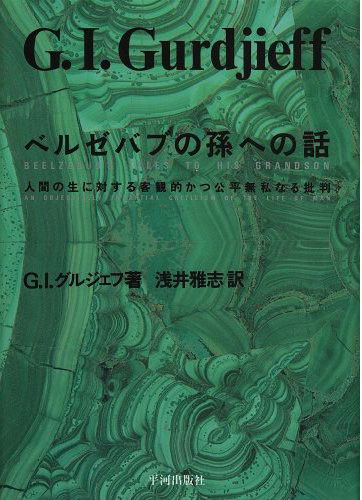
Where are humans going? The sage Beelzebub talks about the three-brained creatures of the planet Earth = the history of the universe over humans.
It's unclear if it's just a brief explanation above, but if you read the following review, you can see a part of the contents.
'The story to the grandson of Belzebab' is said to be difficult, but the gist is clearer, the logic is simpler, and it can be read smoothly without stress compared to general philosophical books. The goodness of translation may have a lot to do with this.
Also, the important concepts of Gurdjieff's ideas, Heptaparapersinok and Triamajkamno, are not so difficult to understand if read through Uspensky's 'In Search of Miracles'.
Certainly, between 'Story to the Grandson of Belzebab' and 'In Search of Miracles', the former premise is the three-brained organism / three-center organism, and the latter premise is the three centers (physical, astral body, mental body).・ There are major differences such as four functions (thinking, emotion, movement, instinct) and five centers (instinct, movement, sex, sensation, consciousness). If 'In Search of Miracles' is functionalist, then 'The Story of Belzebab's Grandson' is more anatomical and biological.
But rather than making such a difference, the true value of 'The Story of Belzebab's Grandchildren' is only demonstrated when the reader compares it to his or her real life. After all, Gurdjieff wrote it in his own words, and his message echoed directly.
For example, the following is said.
'Actually, little boy. When I stayed on Earth, I had the opportunity to travel around and see monkeys of different races, a habit that made them my second nature. When I observed it closely, I could clearly see that there was something.
In other words, the entire internal function of the various races of modern monkeys on Earth, and the so-called 'mechanical posture', is found in the bodies of several types of quadrupedal creatures born in their normal form. They are very similar to the ones, and their facial expressions have a surprising commonality with these quadrupeds.
On the other hand, however, the so-called 'mental characteristics' found in all races of monkeys are exactly the same as the 'female' of the three-brained creatures, down to the smallest detail. 'P. 185
It may be indignant for women in the world to read it, but the similarity between monkeys and females is an undeniable fact.
No matter how beautiful it looks or how elegant it is, a woman's 'mental characteristics' are the same as a monkey in the smallest detail.
This is the essential understanding that I have gained from my own experience, and the 'truth' that I can confidently assure.
Because of this 'truth', for me, 'The Story of Belzebab's Grandson' is a guidebook for life and a practical book for understanding human relationships.
As mentioned in other reviews, the words in this book are mysteriously inspirational.
Perhaps the sound is different for each reader.
But when life is at stake, or when things get stuck, the person who reads this book may feel that Gurdjieff has given him the power to live.
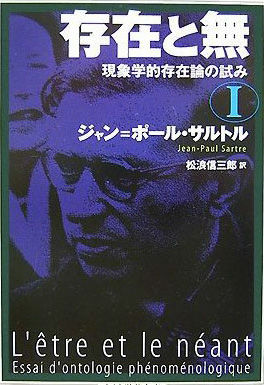
Sartre's philosophical masterpiece, which meticulously analyzes the state (existence) of human consciousness and investigates the dialectic of existence and nothingness. The impact on the world, such as existential psychoanalysis to find the fundamental choices and the advocacy of absolute human freedom, is immeasurable. Based on Husserl's phenomenological method and Heidegger's approach to Daseinsanalysis, Hegel's 'immediate self' and 'anti-self' are interpreted as the existence of things and the existence of consciousness, and capture the existence. A timeless masterpiece that is positioned as a classic of 20th century French philosophy and as the source of various contemporary thoughts.
◆ 11: Beyond Freedom and Dignity: BF Skinner / Translated by Hiroo Yamagata
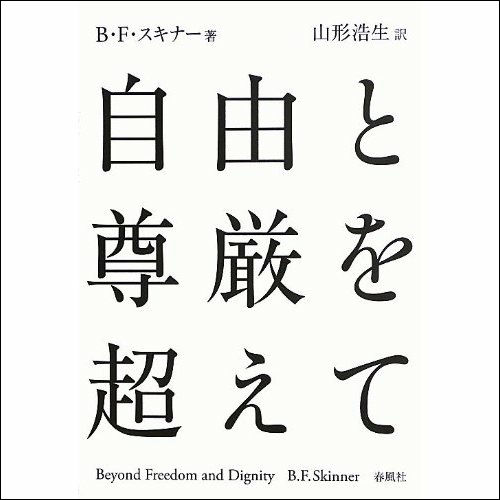
Nuclear war, food shortages, environmental destruction ... How can we solve the problems facing humankind? He seeks the cause of action not in the mind but in the environment, and preaches the scientific creation of a better world. The long-awaited new translation of Skinner, who had a tremendous influence on the psychological world of the 20th century, overturned the view of freedom and dignity and caused ripples.
◆ 12: Candide and 5 others: Voltaire / Translated by Yuji Ueda
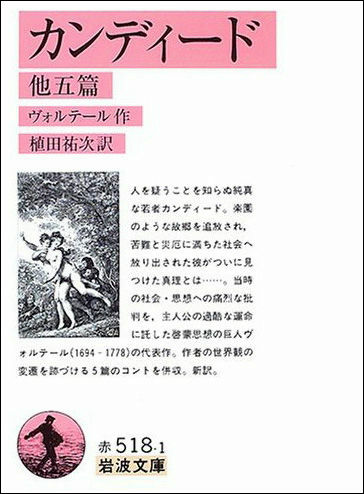
The blog entry 'Fun to read a book: Voltaire' Candide 'to cultivate your own garden ' is fairly straightforward to explain.
Innocent Candido purely believes in Leibniz's best theory taught by his philosophical teacher, Dr. Pangross, but the reality is full of misery and hardships, and is filled with painful and harsh incidents. Being chased from his hometown, he dies from his teacher, Pangros, and his beloved Kunegond. What is the best condition that the best theory tells us? Is it possible to call it the best even in such a painful and harsh reality? Sometimes good things come around. Reunited with a teacher or mistress who thought he had died. However, it quickly breaks up.
Not only the protagonist and the people around him, but also the royal aristocrats, priests, military personnel, citizens, and other characters in the story, whether they are being manipulated by their own ego or being tossed by fate. , No one is happy. It appeals to the dark reality of countless European societies such as court corruption, religious trials, war, pirates, betrayal, fraud, and syphilis.
However, there is one exception. El Dorado in the hinterland of South America. El Dorado is a legendary ideal, but Candido accidentally gets lost here. There, gold and silver jewels flood the earth, but people don't even look at it. Food is plentiful and people's hearts are rich and benevolent. Despite this dreamlike ideal, Candido does not stay in El Dorado, but returns to Europe, where the harsh reality awaits. You can feel Voltaire's message to face reality rather than dreams and illusions and live powerfully there. In fact, Candido faces the harsh reality almost everywhere except El Dorado, but he keeps moving forward without being discouraged.

In 1846, 29-year-old Thoreau was arrested and imprisoned for refusing to pay the 'polling tax.' Based on that experience, he preaches that the government is like a 'monster' and that he himself is 'prepared to live as a good citizen.'
◆ 14: Common Sense and 3 others: Thomas Paine / Translated by Haruo Komatsu
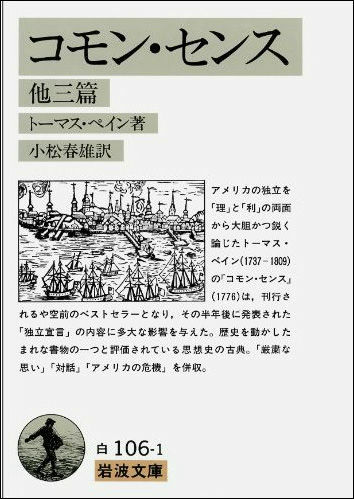
'Common sense' means 'common sense' in Japanese, and many people know this name in world history, but it is more like a 'pamphlet' than a book, but it is. The influence was tremendous, reaching 120,000 copies in the first three months of the 2.5 million population at that time, and finally 500,000 copies, how much it changed history by establishing a new 'common sense'. The following review briefly summarizes.
It is difficult to doubt and re-question 'common sense' and create new 'common sense'. As is the case in Japan today, we will re-question the 'common sense' (conventional, recognition, customs, systems, etc.) that is deeply rooted in society, refute the dissent of the opposition, and spun out and disseminate a new 'common sense'. Going is a very painstaking process. This book Thomas Paine's 'Common Sense' has succeeded in presenting and accepting the new 'common sense' of independence to society while revealing the insaneness of 'common sense' under the existing British colonial system. It is a historical document.
Read the proud British Constitution and reveal its structural flaws. It refutes the 'common sense' that the hereditary monarchy prevents unnecessary internal disturbances and contributes to peace. Furthermore, the patriotic 'common sense' that Britain is a 'motherland'. The prosperity of the United States was brought about by the United Kingdom, and the economic 'common sense' that it is necessary and profitable to continue to be connected with the United Kingdom. The military 'common sense' that the United States cannot compete with the military power of Britain even if it tries to become independent. Pain simply and convincingly highlights the insaneness of these 'common senses' that are widely and deeply rooted in society, which are blocked by the separation from Britain, while presenting the grounds one by one. While doing so, I will demonstrate that the Declaration of Independence is the most sensible and realistic path for America.
What was thought to be 'common sense' becomes irrational and insane over time. That's what Payne tells us, and that 'common sense' always has room for reconsideration. I must not feel that such critical rationalism gives a glimpse of the realism that underpinned the American Revolution. Come along with 'The Federalist' (Iwanami Bunko).
◆ 15: Marx Engels Communist Manifesto: Marx, Engels / Translated by Ouchi Hyoe and Kousaka Itsuro
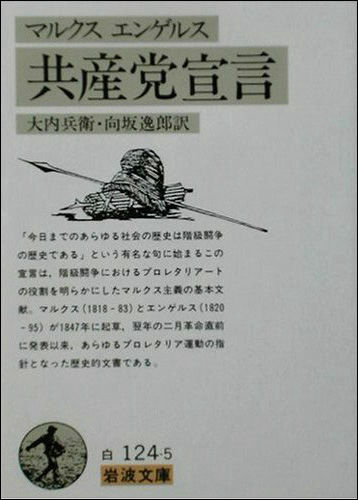
This declaration, which begins with the famous phrase 'History of all societies to date is the history of class struggle,' is a basic Marxist document that reveals the role of proletariat in class struggle. Drafted by Marx (1818-83) and Engels (1820-95) in 1847, it is a historical document that has guided all proletariat movements since it was published shortly before the February Revolution the following year.
◆ 16: Confession Above: Augustine / Translated by Eijiro Hattori
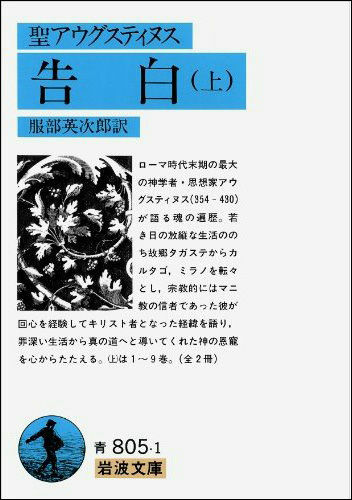
The following reviews by the Hall of Fame reviewers are well organized as to what the hell is 'confessing'.
A book in which Augustine talks about the past from the present perspective while thinking about theological and philosophical things such as God.
In the first volume, I will talk about from childhood to the age of 33. I neglected my studies as a child,
He states that scholarship was a filthy Roman myth, and laments those who are more concerned about grammatical mistakes than to God.
At the age of 16, he stole with everyone, was enthusiastic about theater, and was attracted to Manichaeism.
He talks more about friends who conspire to steal and, on the other hand, are comforting.
Next, Manichaeism did not explain well, living together, meeting Milan Bishop Ambrosius and understanding Catholicism,
Engagement with a 10-year-old girl (!), State her thoughts, finally baptized, and soon her mother Monica died.
He has confessed and impeached all aspects of himself in the past from his current Catholic position.
No matter how much I fall, I always see my mother Monica praying for her son's baptism and praying for her.
It is often surprising to non-religious people living in modern Japan because they look at themselves with the strict Catholic eyes.
This book is divided into 9 volumes only in the first volume, and it is further divided into chapters, so each chapter is at most a few pages.
You can also read it little by little. The letters are small and the translated text is sometimes confusing (although the original text may be esoteric).
Why does a sentence that starts like this end like this? It was often thought that.
◆ 17: Confession Above: Jean-Jacques Rousseau / Translated by Takeo Kuwabara

The contents of Rousseau's 'Confession' are easy to understand and understand in the following reviews.
It is an autobiography of Rousseau (died 1779) from 1712 to 1765, from childhood, boy, adolescent, middle-aged, and elderly (upper, middle, and lower). Pre-adolescent recollections are literary. It seemed that some kind of sadness and sadness was flowing at the base. It reminds me of conflicting emotions such as sweet and painful. However, he does not run too much for beautification, but frankly describes his personality, personality, environment, experience, etc. After middle age, Rousseau, who is worried about human relationships, can be seen becoming paranoid. I have a low status, but I want to go out into the world. However, he falls into a dilemma because he is not good at socializing.
Rousseau's feelings for women are a major pillar of this autobiography. Rousseau, who talks about love at the time, has a fever. But how much was his love for his wife Therese? There is the fact that the baby was put in an orphanage. It seems that it was due to financial circumstances, but it would not have been possible without feeling guilty. There is Rousseau's excuse, but it should have been morally avoided. I also kept thinking, 'Why?' The suffering of Rousseau and Therese can be seen. The greatness of Rousseau's ideas is recognized. However, the validity of this act must be questioned. Perhaps there is a secret that is not recorded in the 'confession'. The 'confession' speaks of himself nakedly, but the orphanage case is important because the description is assassinous. However, it may be a painful past in which the roar can only be suppressed by speaking plainly. There is a gap in Rousseau's life between one side of the idealist and one side of suffering from life and letting go of the baby. It made me think about the multifaceted nature of human beings in life.
◆ 18: The Complete Works of Aristotle: The Revised Oxford Translation, Vol. 2: Aristotle / Jonathan Barne
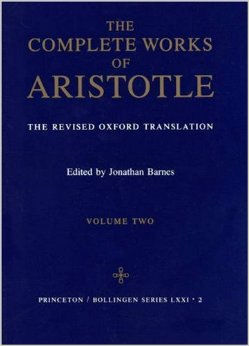
It is a complete collection of 12 volumes published by the Oxford University Press, and in Japan, Iwanami Shoten will publish 'New Edition Aristotle Complete Works 20 Volumes + Separate Volume' as a 100th anniversary commemorative publication, 1968 This is the first time in 40 years since 'Aristotle Complete Works' (17 volumes) published from 1973 to 1973. ' New Edition Aristotle Complete Works Vol. 1' Category Theory ' ' ' New Edition Aristotle Complete Works Vol. 5' About Generation and Disappearance ' ' has already been published, and 'New Edition Aristotle Complete Works Vol. 'Aristotle' will be published on February 7, 2014.
◆ 19: Course of Positive Philosophy : Auguste Comte

Tale is known for advocating a three-step law at the beginning of this book. The three-step law argues that every concept or knowledge goes through three steps. According to Comte, the human mind has gone through the theological and metaphysical stages to the empirical stage, each of which has its own distinctive way of thinking. First, at the theological stage, all knowledge is explained by direct motivation from a religious and theological point of view. At the metaphysical stage, abstraction and personalization take place and are described as objects. And in the empirical stage, the phenomenon is explained by the general law based on the observation of things. After grasping the development stage of the new human intellect through these stages, Comte classifies science. Comte thought that this classification needed to be an expression of the general facts sought by comparing phenomena. By ordering, Comte placed first mathematics, second astronomy, third physics, fourth chemistry, fifth biology, and sixth sociology. Sociology here is the first name that Comte called, sociology has social statics as order and social dynamics as development, the former studies society as an organism, and the latter has three stages. It is positioned as a study of social development that has developed according to the law of. Regarding social development, Comte thought that society was in the military stage at the theological stage, the legal stage at the metaphysical stage, and the industrial stage at the empirical stage.
◆ 20: Critique of Pure Reason Above: Kant / Translated by Hideo Shinoda
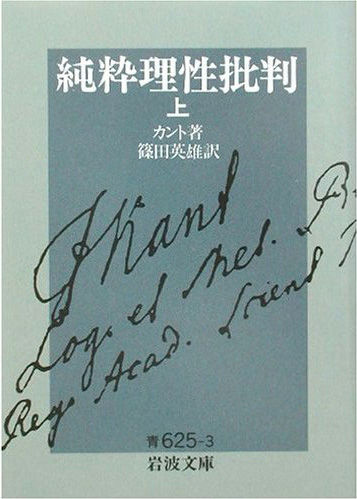
Human beings have words and think about things by connecting words, but Kant thoroughly investigated human abilities, that is, abilities called 'reason', and how to make them work. This is because each person's way of life is determined by how he or she thinks about things with his or her own reason. Reason works not only in the context of seeking scientific knowledge, but also in the context of thinking about what morality is, what beauty is, and what God and religion are. In order to avoid the mistake of looking only at scientific knowledge and not to fall into superstition or fanaticism, it is necessary to make reason work properly in all these situations. Kant followed this path of criticism of reason, aiming to ensure human freedom and dignity.
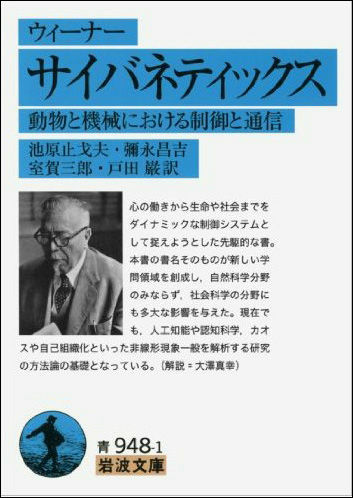
A pioneering book that attempts to capture everything from the work of the mind to life and society as a dynamic control system. The title of this book itself created a new academic field and had a great influence not only on the field of natural science but also on the field of social science. It is still the basis of research methodologies for analyzing general non-linear phenomena such as artificial intelligence, cognitive science, chaos and self-organization.
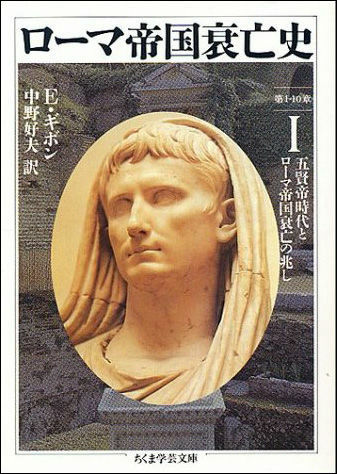
Why did the Roman Empire, which had the largest print in the ancient European world and boasted many years of prosperity, perish? A timeless answer to this 'indelible, eternal question' -a complete translation of the great history book of 18th century British historian E. Gibbon. Creates the appearances of the Roman Empire during the Five Good Emperors, military power, prosperity, and the foolish and tyrant Commondus, Karakala, Domitian, and Elagabalus, which are signs of the decline of the empire.
◆ 23: About the essence of things: Lucretius / Translated by Katsuhiko Higuchi
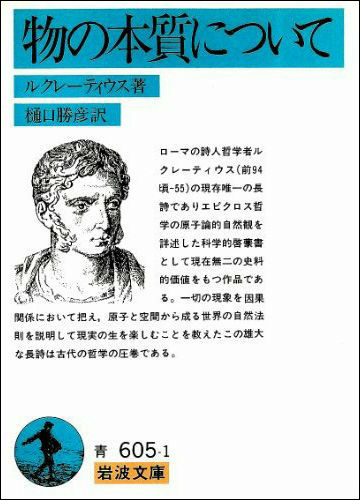
The value of this book is argued as follows, as the following review is 'the value of this translation'.
I think it's a little difficult for us to realize, but
Without the intervention of a personal absolute person such as God
Explaining the world means
In Western Europe, which entered the Christian era,
It was a profane, heretical and blasphemous way of thinking.
It's impossible. The meaning of morality is lost.
Also like Plato, Aristotle, and Plotinus, who tended to be treated as heretics.
Even the three Greek philosophers envisioned a divine being.
In that, I drew ideas that lead to modern natural science,
Along with Epicurus, it continued to be Hissori and its precious source.
The importance of this work by Lucretius is enormous.
It is a book that has continued to support the hearts of those who were potentially atheists and natural scientists.
The splendor of the style is also from the perspective of humanism.
It would have added high value to this book and helped promote the emergence of modern natural science.
Also, the translator, Katsuhiko Higuchi, was a legend in his Latin ability,
Unfortunately, he was also known for his stoic amount of work, probably because of perfectionism.
This book is also valuable as one of the works of Professor Higuchi.
◆ 24: Dhammapada: Translated by Entai Tomomatsu
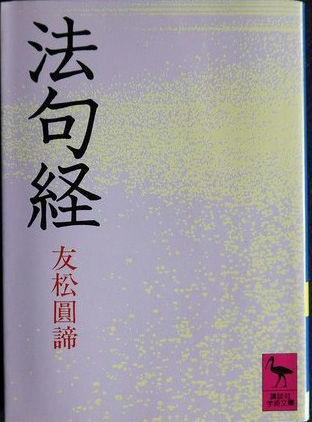
The oldest epigram collection of Buddhist aphorisms consisting of 423 beautiful poems, the source and introductory book of Buddhism. At the end of the book, a modern translation and commentary of the teacher's youth are attached.
The content is the following Hall of Fame reviewers, and the explanations of the top 50 reviewers are easy to understand.
The author (translator) is in the commentary about the Dhammapada.
The words 'a bible that should be prepared in everyone's pocket'
As introduced, this is a very easy-to-understand scripture for everyone.
If it is a bible (Bible), then 'Proverbs (a book in the Old Testament)'
It is an impression like.
All in the author's translation and in a little smaller letters in the second half
There is a modern translation. There is a number, so
You can easily go back and forth between the two.
Selflessness (there is no such thing as 'self'), ruthlessness,
There are many Buddhist-familiar sentences such as life suffering ...
I can see the following words that mean to take good care of myself, and I feel familiar with them.
(Translated by Dhammapada 160 Tomomatsu)
I am
I'm sorry
Take care of yourself
By whom
(Modern translation)
Indeed, the self is the rescuer of the self.
Who on earth could be a rescuer outside of this self?
It is in the well-controlled self that we can find other saviors.
I can.
I also have a book called 'Hokkaido Lecture' by the same author, Kodansha Academic Bunko.
Most of this is explained by Mr. Tomomatsu, and the full text of the Dhammapada is not included (only a small part).
In any case, the content is convincing and empirical, regardless of the type of religion of the reader.
It is easy to understand even for beginners and is recommended for those who are interested.
◆ 25: Astronomical Dialogue <above>: Galileo Galilei / Translated by Seizo Aoki
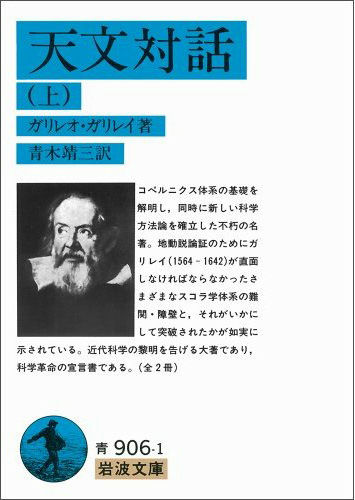
A timeless masterpiece that elucidated the basics of the Copernican system and at the same time established a new scientific methodology. It clearly shows the challenges and barriers of the various scholastic systems that Galilei had to face for the heliocentric argument and how they were breached. It is a great book that heralds the dawn of modern science and is a declaration of the scientific revolution.
◆ 26: Dictionary of the English Language: Samuel Johnson
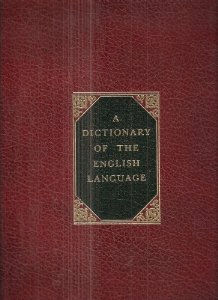
The content is mentioned in the article ' History of English-Compiling a Dictionary ' on the following site.
Born as the son of a poor bookstore, Samuel Johnson had a lot of trouble, as he had a bad eye and ears because of his childhood illness, and he had to drop out of the university he entered due to financial reasons. It seems. Besides compiling dictionaries, he was also active as a poet, essayist, and literary critic. The A Dictionary of the English Language was published by Johnson in 1755. A major feature is that it contains more than 40,000 words and uses quotations from famous authors such as Shakespeare and Milton to explain the meaning of the words. The number of citations is said to be as high as 114,000, and the method of incorporating 'citations' into dictionaries had a great influence on the compilation of dictionaries for posterity. What's more, unlike a French dictionary compiled by appointing a huge number of scholars, it took about nine years until it was published, and it was completed almost by myself with only a few assistants. Deserves praise and admiration. Dictionaries have been published by then, but in terms of content, they far surpass other dictionaries, and it is no exaggeration to say that they are the very first full-scale dictionaries. For a long time before the Oxford English Dictionary was published at the end of the 19th century, it maintained its absolute status as an authoritative dictionary.
◆ 27: Discourse on Method: Rene Descartes / Translated by Hiroaki Yamada

The following reviews are very good.
We cannot say that we do not read this Descartes book with prejudice today.
This book is known by the overly famous word 'I think, therefore I am.' And is read with the thoughts of each reader about that word. It is a book destined to be read in that way.
When I start reading considering that it is a philosopher's and classic book, I am confused that the beginning part is not very philosophical.
The book is composed of six parts, but the first three parts are, so to speak, a preface, which tells the story of Descartes's background and the process leading up to the discovery of the basic ideas of his philosophy developed in the fourth part. ing.
The fourth part is the most well-known part of the book, which talks about the proposition 'I think, therefore I am.' And the proposition that follows, the existence of God. It's only 13 pages in Japanese, and it's so light that it's a little out of place.
In Part 5, the idea of nature is developed based on the proposition presented in Part 4. In particular, most of the descriptions are about the structure of the heart. This is a good representation of Descartes' idea of thinking of the human and animal bodies as something like a machine.
Part 6 also goes into more realistic content than the principle, as in Part 3, and explains how this book was published.
Classics are sometimes like this. Speaking of this book, only 13 pages of Part 4 made it too famous. However, if you read it again, you can read other parts with interest.
◆ 28: Divine Comedy Hell: Dante Alighieri / Bunsho Jugaku
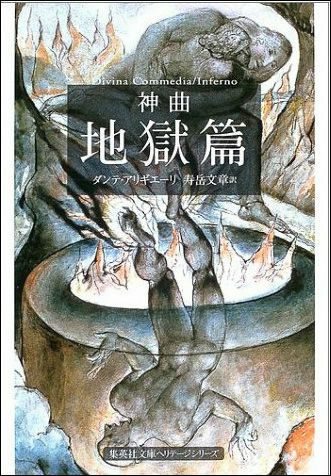
The story 'Divine Comedy' in which the poet Dante fulfills his journey on the equinoctial week as it is. The 'Hell' begins on Maundy Thursday, 1300 (April 7th), when 35-year-old Dante wanders into a dark forest alleging sin. Guided by the Latin poet Virgil, the dead of hell who are punished for various sins such as carnal desire, heresy, betrayal, etc. I will go around in between.
◆ 29: Don Quijote <Part 1>: Cervantes / Translated by Nobuaki Ushijima
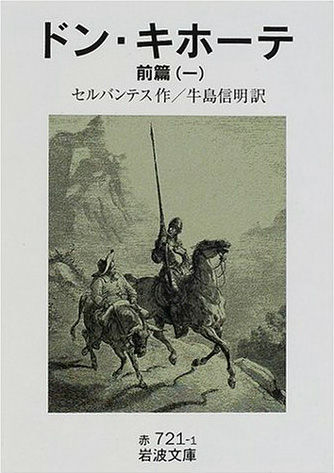
There are 6 translations in total, but it is easy to understand what kind of content is finished in the following review, 'The Greatest and Most Depressing (?) Book'.
The title above is Dostoevsky's remark, but it is a novel full of humor that cannot be called 'melancholy'.
Don Quijote rushes without listening to the words of his servant, and is helped by Sancho.
A kind-hearted Sancho Panza who is not interested in chivalry or honor, but dreams of being the lord of the island, just a share of his master's success.
A novel that is the ancestor of modern novels, whose internal reality and character modeling are also deeply explored.
This book is the one that the translator, Mr. Ushijima, cast a stone on 'Don Quixote', a 'classical masterpiece that can only be heard and not actually read.'
Taking into account the above facts, he was easy to read and demonstrated the results of his Cervantes research in its translation.
We pay attention to the translation that makes the story smoother.
If you think it's boring, you can skip it if you read it because of verbosity.
Still, the fun of this novel will be fully conveyed, and this redundant description and episode is customary at the time.
Cervantes himself is supposed to be read by 'distraction' in the preface,
Why don't you read it leisurely without putting effort?
By the way, the famous scene of assaulting a windmill is recorded in <Part 1>.
◆ 30: Kierkegaard Collection <Volume 1> That or this: S. Kierkegaard
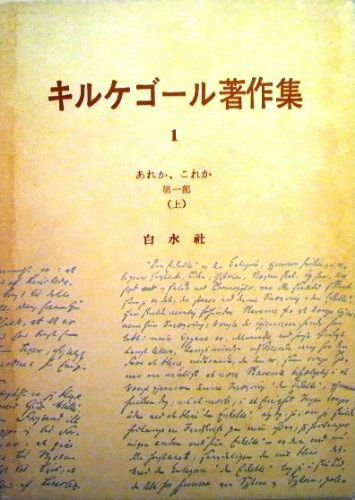
The explanation of what kind of content is summarized in Wikipedia's 'that or this ' in great detail, and is as follows.
The preface of this book begins with Victor Eremita getting two notes from a desk drawer and describing how he came to publish them. The memoirs of A, who lived an aesthetic life, and the memoirs of B, who chose an ethical life, show completely different ideas in contrast.
The aesthetic life described in A's memorandum includes the following contents. There is a difference in the concept of sin in tragedy between the content of modern tragedy and classical tragedy, Greek tragedy is a sin due to extrinsic conflict, while modern tragedy like Antigone is an intrinsic guilt. Consider it as. As for human sorrow, it deals with remorseful sorrow that cannot be expressed externally by art. He argues that the most unfortunate human beings cannot live in the present in hope because they are hindered by recollection, or they live in the present in recollection because they are hindered by hope. Kierkegaard depicts the shallowness of his daughter, who abandons her first love man and marries another, who is convinced that he is the real one, and a farmer who sows seeds while changing lands to increase crop yields. .. The aesthetic life of pursuing pleasure always changes the subject by seeking stimulus, and when there is no change, it becomes boring. Boredom is based on a feeling of emptiness, which causes 'dizziness' in humans. To avoid it, humans live capriciously in search of new pastimes one after another. In Kierkegaard's view, despair is the end of an aesthetic life.
In B's memoir, it is written as a letter to A's author, a friend who is open to aesthetic life. First, regarding the aesthetic value of marriage, it is stated that the real challenge of marriage is to combine the elements of lust with strict innerness, and that frankness and honesty are the conditions for marriage. We must never marry in secret, and we believe that inner honesty is important in marriage and that it must be able to maintain eternity against any aging. In other words, in life, human beings need to choose one of 'that or this', and it is insisted that they choose an ethical life that contradicts the aesthetic life. This choice is free and you can make your own decisions to achieve your ethical life obligations and your mission. It is shown that a person who cannot realize a universal human being realizes that he / she is an exception who has reached the limit of individuality and acquires the corresponding innerness.
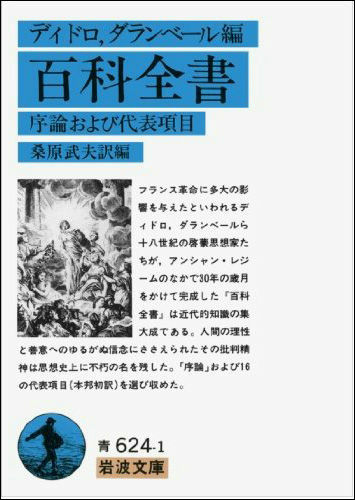
Although it is a very famous book in world history, the content of the book is very convincing as pointed out by the following review, 'It was unexpectedly unbalanced.'
This book is probably one of the kind of books that is preceded only by the name, but in reality it is rarely read.
When I actually read it, I was surprised at the various contents.
It can be said that there is no sense of unity, and I got the impression that the author of each item was left to the content.
Diderot's long introduction is good, but the same Diderot manufacture has 10 pages, and the item 'Peace' has only 4 pages.
On the other hand, there are 36 pages of items called 奢 侈.
From the point of view of 'Enlightenment thought', the imbalance cannot be understood by modern people.
The most surprising thing was the item of technology. He emphasized the importance of technology, which is often seen as low compared to science.
◆ 32: Enneads (excerpt) <1>: Plotinus / Michitaro Tanaka, Muneaki Mizuchi, Yasuhiko Tanoto Translated
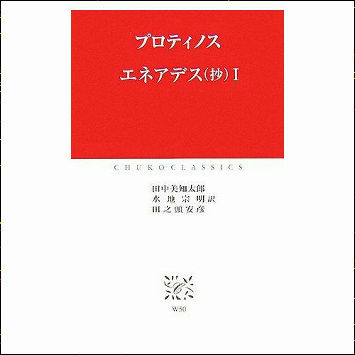
The desire to recognize the structure of the world or all beings and the longing to identify oneself with the supreme one ... A philosophical book that wishes to 'approach and unite with God above all things.'
◆ 33: Enquiry Concerning Political Justice: William Godwin
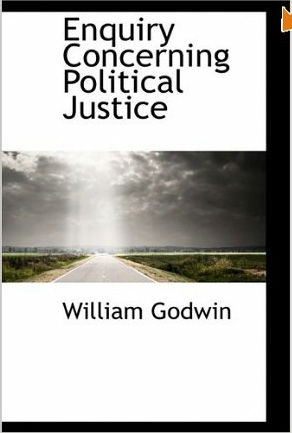
The author, William Godwin, is a pioneer of anarchism , and the historical position of this book is as follows.
Immediately after the French Revolution in 1793, Godwin's most successful book, Enquiry concerning Political Justice, and its Influence on General Virtue and Happiness, literally translates to 'Political Justice and its Impact on General Virtues and Happiness.' 』) Is two quartet editions and was sold at a price of only 3 guineas. Soon the author became known as one of the most influential social philosophers of the time, and the book was given a position alongside Milton's Areopagitica, Rock's Some Thoughts Concerning, and Rousseau's Emile. Young poets like Saudi, Coleridge, and Wordsworth, who were college students at the time, devoured this book and used it as a source of political education. Political Justice has been published in four editions, the aftermath of the French Revolution has expanded in Britain, Prime Minister Pitt has begun to put down the turmoil, and Godwin has eased attacks on government and property after the second edition.
◆ 34: Essays <1>: Michel de Montaigne / Translated by Shiro Miyashita
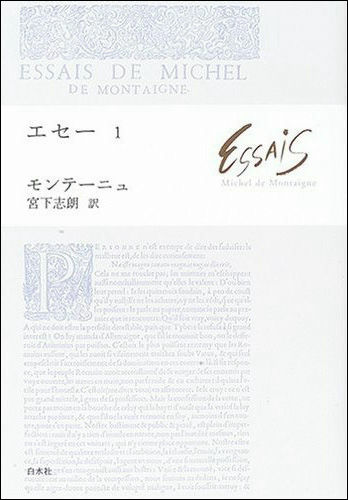
Michel de Montaigne is a 16th century French thinker and moralist. The 'Essay' that he left behind is a compilation of classical knowledge, and at the same time, it has been accepted as a liberal arts book for intellectuals for a long time. It influenced thinkers and has been read by many as a classic masterpiece to this day.
The phrase 'what do I know (Ku Se Ju)?' Is Montagne's word, but he humbly admits that human reason, judgment, and knowledge are limited, and trial and error. It is a good representation of Montagne's idea of pursuing the truth without fear.
In the new translation, the translator, Mr. Miyashita, wrote as follows. 'My basic policy is to try to translate the text so that it can be read in a neat mood. Of course, Montagne himself does not write it neatly, so this is a fairly tightrope walk. It can't be helped. Still, I want to somehow build a fresh translation and surely pass on this book of life to the next generation. '
Let me give you an example below. 'I'm not sure where death is waiting, so let's wait everywhere. Thinking about death in advance is nothing but thinking about freedom. People who learn how to die forget the hearts of slaves. He is a human being who was able to do it. '
◆ 35: Spinoza Echika Extract: Benedictus de Spinoza / Translated by Ichiro Sato
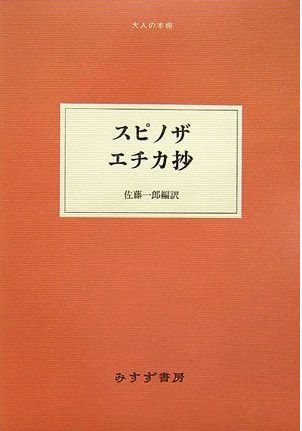
Bertrand Russell says. 'No one of the great philosophers is as noble and lovable as Spinoza. It's ethically the best.' As an atheist, Spinoza was obsessed with speaking his name for some time after his death. But he was resurrected. Lessing, Goethe, Novalis, Heine. Romantic poets, George Eliot. And in the 20th century, Freud, Joyce, Borges, Deleuze ...
Among the works, 'Echika' attracts readers. 'Echika' is a thrilling argument about human freedom and true happiness in the form of Euclidean geometry while preaching God = nature. A new translation of this great classic heading towards the conclusion that 'everything that is swaying is rare, but it is also difficult.'
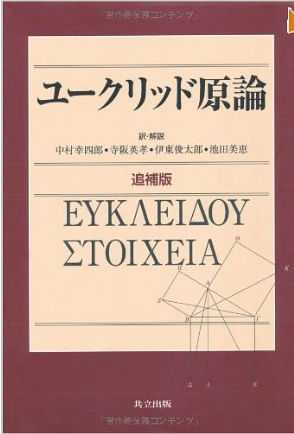
The so-called is a book that established the status of 'mathematics', as the contents of Euclidean geometry includes, first than corresponds to the Original ' What is the Euclidean' Principles '- two thousand years Yomitsuga the mathematics of the classical ' of It should be easier to understand if you read the contents as follows.
'No royal road in geometry' is known as Euclid's saying. Even more immortal is the book 'Elementary Theory,' which determined the style of today's mathematical books: propositions, theorems, and proofs. The overly lean description of this book, on the contrary, has created many mysteries and caused many controversies of the past and present. Euclid himself is also a mystery. Who on earth did you try to write for? While reading the original text, approach the truth.
◆ 37: Study of hybrid plants: Mendel / Kunio Iwatsuki, Translated by Kouhei Suhara
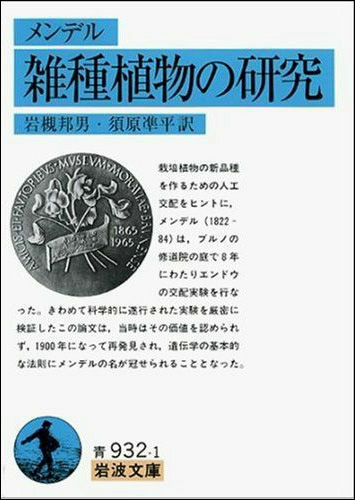
It is a Mendel book that discovers the laws of 'heredity' that are inevitably learned in high school biology, and it is very easy to read because it is written extremely plainly.
Inspired by artificial mating to create new cultivars of cultivated plants, Mendel (1822-84) conducted a pea mating experiment in the monastic garden of Brno. This paper, which was a rigorous examination of highly scientifically performed experiments, was not valued at the time and was rediscovered in 1900, bearing Mendel's name for the fundamental laws that underlie the foundations of genetics. It became a thing.
◆ 38: Creation of a new woman: Betty Friedan / Translated by Tomiko Miura
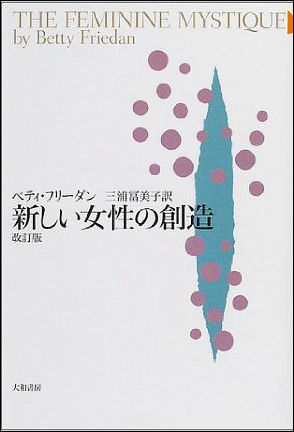
The content is detailed in the reviews below.
From the answers to the questionnaire given to 200 fellow students by the author, 15 years after graduating from women's college, how much is the difference between the real life of women and the image that women are trying to adapt to, and why? It is a book that specifically describes about based on various examples and facts. As a college student at this time, I was shocked by the fact that the housewives in the warm 'my home' of those days in the United States were never happy.
Femininity Praise Freud's Motherhood Myth Woman as a Consumer
The various worries and sufferings of a woman who became a housewife by being taken in by these various 'traps' are clearly depicted. How to avoid the essential human desire to 'grow' is the basis of how to live femininely, and only then can you become a true 'female' by those who admire 'femininity'. That's what many women do. -Don't be enthusiastic about anything-Living through others So many American women are struggling in this 'trap'.
In particular, the next passage was deeply shocked: 'People must know how terrible nihilism a housewife gives to a woman. For a talented modern woman, she is a housewife. In a sense, the number of women who have adapted as housewives or have grown up hoping to become a housewife is the number of women who lived in the Nazi camp just waiting for death. It can be said that it is destined to be the same as a million people. '
◆ 39: The First Folio of Shakespeare: William Shakespeare / Carlton Heineman ed./Peter WM Brainy Preface
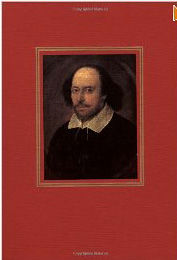
The official title of this ' First Folio ' is 'William Shakespeare's Comedy, Historical, Tragedy' and has the following content :
comedy
・ 1 Tempest (first appearance)
・ 2 Two Gentlemen of Verona (First appearance)
・ 3 Windsor's cheerful wives
・ For 4 scales (first appearance)
・ 5 Mistake comedy (first appearance)
・ 6 Fuss
・ 7 Loss of love
・ 8 Summer night dreams
・ 9 Venetian Merchant
・ 10 As you like (first appearance)
・ 11 Jaja Uma Narashi (First appearance)
・ 12 If it's over, everything is fine (first appearance)
・ 13 Twelve nights (first appearance)
・ 14 Winter story (first appearance)
Historical drama
・ 15 King John (first appearance)
・ 16 Richard II
・ 17 Henry IV Part 1
・ 18 Henry IV Part 2
・ 19 Henry V
・ 20 Henry VI Part 1 (First appearance)
・ 21 Henry VI Part 2
・ 22 Henry VI Part 3
・ 23 Richard III
・ 24 Henry VIII (First appearance)
tragedy
・ 25 Troilus and Cressida
・ 26 Corio Reinas (first appearance)
・ 27 Titus Andronicas
・ 28 Romeo and Juliet
・ 29 Timon of Athens (first appearance)
・ 30 Julius Caesar (first appearance)
・ 31 Macbeth (first appearance)
・ 32 Hamlet
・ 33 King Leah
・ 34 Othello
・ 35 Antony and Cleopatra (first appearance)
・ 36 Simbelin (first appearance)
◆ 40: First Principles: Herbert Spencer
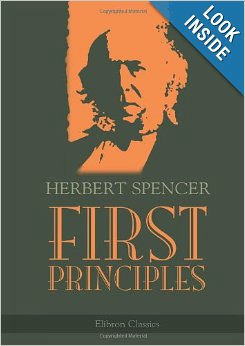
According to '17 Spencer Boom ', what kind of book is as follows.
A philosophical book that is located at the beginning of the comprehensive system and discusses the principles of evolution of the entire universe. It is said that Soseki Natsume also borrowed from a friend and read it when he was a preparatory student at the university.
◆ 41: Gargantua-Gargantua and Pantagruel <1>: Francois Rabelais / Translated by Shiro Miyashita
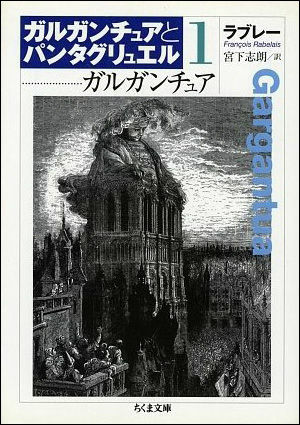
The following reviews by the top 1000 reviewers will be helpful as they touch on the contents.
It seems that the translation of the fifth book is finally completed, so I read it from this first book.
The story is about the time when Charles V of the Habsburgs and Francis I of the Valois were fighting over Italy.
'Unchinosuke, Bichiguso-kun, Butaro, Mamire-chan, and you guys are falling on top of us. , Even though your hole opened your mouth, burn it with the heat of St. Anthony! '
Like, the skill of this word game, the sense of modern language not found in the old Watanabe translation!
In the first half, I think it's such a poop story, and the flatulence continues, but the story suddenly becomes serious from around the Picrocol War, which started with skirmishes between rural people, why not! I feel like. But it's charming, and if you win the war, the story of Abo will be repeated, so it's a relief ...
An urban legend at the time that a nun and a person who commits adultery die with an erection ...
The one-eyed, the rickets, the rickets, the ugly, the mad woman, the rickets, the disabled, the malformation and the market price were decided to be put in the convent. All you want to say!
So, maybe because I said so much, I'm going to build a stupid monastery to destroy sin, this man named Gargantua.
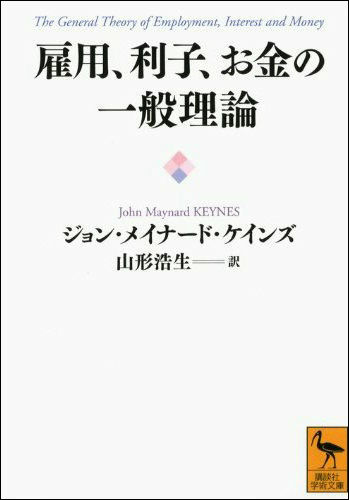
I can't sell things, I don't have a job-why can the market stop working at laissez-faire? In the midst of the global recession, Keynes thoroughly looked at the errors and limitations of classical economics, which he himself was familiar with, and finally came to this book, which is the basis of modern economics. The ideal form of social science, which faces the real world and radically updates the theory. Hicks' important papers that formulate the outline of this book are also accepted.
◆ 43: New Testament Gospel: Translated by Toraji Tsukamoto
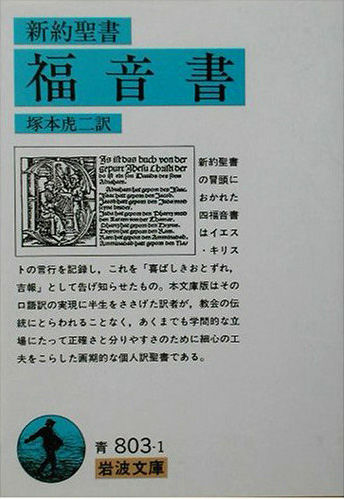
The Four Gospels at the beginning of the New Testament record the words and deeds of Jesus Christ and announce them as 'pleasant souls, good news.' The paperback edition is an epoch-making translation in which the translator, who devoted half his life to the realization of the colloquial translation, devised meticulous efforts for accuracy and comprehension from an academic standpoint without being bound by the tradition of the church. It is a personal translation of the Bible.
◆ 44: Guide for the Perplexed: Maimonides
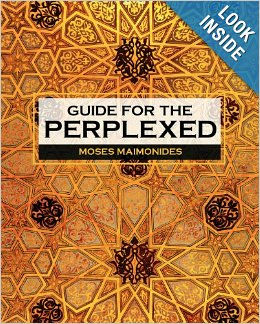
According to Wikipedia's ' Maimonides-Maimonides ', the content is as follows.
Also, the philosophical book 'Guide for the Lost People' is a work that calls on philosophers who have lost their faith, and its purpose was to reconcile Aristotle with Jewish theology. He attempted to interpret the meaning hidden in the Torah scriptures using the views of Aristotle and Arab philosophers such as Farrabi and Ibn Sina, and rationally interpreted Jewish theology. Aristotle is an authority on the world under the moon, but revelation is an authority on the heavenly world, he says. But in knowledge of God, philosophy and revelation are united, and the pursuit of truth is a religious duty. Controversial and conservative Jewish factions in the Islamic world incinerated Moshe's philosophical books. The idea was criticized as being too rational, but it influenced posterity as a precursor to the philosophical interpretation of the Bible.
Later, 'Guide for the Lost People' was translated into Latin and received high praise from Christian theologians such as Albertus Magnus, Thomas Aquinas, and Eckhart.
◆ 45: Harmony of the Universe: Johannes Kepler / Translated by Yoshihiko Kishimoto
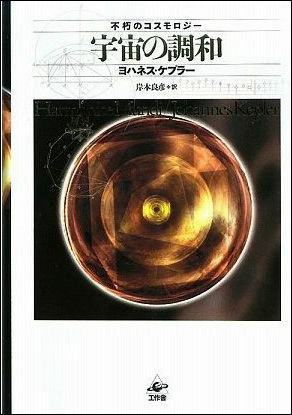
Six planets, including the earth, move around the sun while playing a harmonious sound!
The results of 'New Astronomy' (1609), which established the first and second laws through joint research with Tycho Brahe and the space model based on the five regular polyhedra proposed in the maiden work 'The Mystery of the Universe' (1596). A historical masterpiece that integrated and established the Third Law. The first complete translation in Japan from the original Latin text.
The treasure in the history of European idea revives almost 400 years ago.
◆ 46: Hebrew Bible

According to the ' Hebrew Bible ' on Wikipedia, the content is as follows.
The Hebrew Bible (Hebrew: תַּנַ 'ךְ, תּוֹרָה, נביאים ו (־) כתובים) is the Jewish' Bible '. Tanakh, Mikler. Written in Biblical Hebrew, it is the 'Bible canon' of Judaism. The first five books (Hebrew: חֻמָשׁ, Pentateuch, narrowly defined 'Torah') and the whole Torah (Torah, Hebrew: תּוֹרָה) are 'Torah, שּשָהה As 'Torah, Written Law', it is considered to be a part of the oral Torah (Hebrew: תּוֹרָה שֶׁ (־) בְּעַל־פֶּה, Oral Law) and mainly 'Dual Torah'. 'Torah (תּוֹרָה) [1]' is the meaning of teaching, instruction, theory, and theory. Arithmetic (תּוֹרַת הַ (־) חֶשְׁבּוֹן) הַכָּרָה), which is also used as a general noun. Oral Torah has become synonymous with 'The Talmud' ('learning').
The first five books are 'Chumash (חֻמָשׁ), in terms of Christian nuances,' Pentateuch, Pentateuch, Five Books of Moses (Hebrew: חֲמִשָּׁהחֻמְשר) The translation 'Bible (ביבליה)' itself already contains Christian nuances). In the original Hebrew word, 'holy (קֹדֶשׁ, קָדוֹשׁ, קִדּוּשׁ)' means special, special, different, dedicated, dedicated, dedicated, spent.
◆ 47: The Corpus: The Hippocratic Writings: Hippocratic Writings
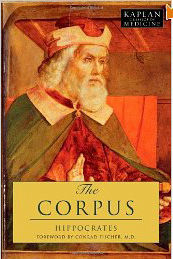
Wikipedia's ' Hippocrates Complete Works ' describes what kind of book it is.
The Complete Hippocratic Corpus (also known as the Corpus Hippocraticum) is a collection of more than 70 medical documents written in the ancient Greek Ionic dialect, compiled around the 3rd century BC. It has been more than 100 years since the death of Hippocrates until the compilation, and since all the documents are anonymous, there is no answer to the question of how much Hippocrates himself was involved in. It contains many works by doctors of the Hippocratic School (Kos School), but also works of what appears to be the Knidos School and other schools. There is also a theory that the maximum number of authors in the entire collection is 19. It is unclear whether the manuscripts of the Kos school library were compiled over the Library of Alexandria, or the bearer medical documents that were circulating in the streets were stored in the Library of Alexandria, but at the end of the 3rd century BC. By then, a group of medical books recognized as Hippocrates' theory had been established, and became a complete collection in the form that is handed down to this day.
The complete Hippocratic collection contains various types of documents in random order, such as clinical records, medical textbooks, lecture notes, research notes, and philosophical essays, and is intended for a wide range of readers, from medical professionals to outsiders. ing. Notable documents include 'Hippocratic Oath', 'Prognosis', 'Acute Disease Cure', 'Proclamation', 'Air, Water, Place', 'Epidemic', 'Sacred Disease', 'Old'. About medical techniques ”. However, according to W. Jones, editor of Hippocrates Selection (Rouve Edition), only 1 and 3 of 'Prognosis', 'Cure of Acute Diseases', and 'Popular Diseases' are 'great in Greece by the same person'. It is said to be a scientific paper without superstitions and philosophical residues, written before the passage of time. '
◆ 48: Historically: Herodotus / Chiaki Matsudaira Translated
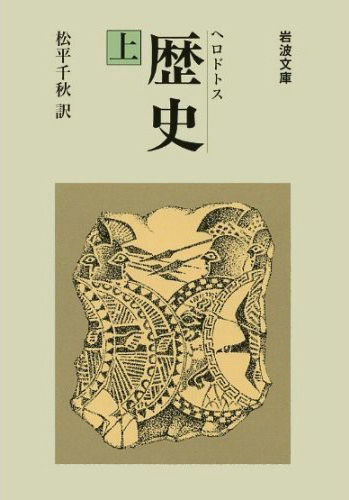
You can understand what kind of book it is by reading the following reviews.
'Egypt is the gift of the Nile' (page 164 of this book) is a famous phrase that almost always appears in history textbooks, and that alone shows the value of this book. It is no wonder that ancient Roman politician Kikero calls it the 'father of history', and it is an excellent history book that covers a wide range of contents, including the geography and customs of each region. Without this, the history of the ancient Greek Orient cannot be told.
Herodotus's stance in this history book is said to be afraid that 'events in the human world will be forgotten as time goes by', and history will be replaced and forgotten as 'the battle of the gods' like the Trojan War. It is thought that Herodotus was left as a record for fear of, and in that respect Herodotus can be said to be the 'ancestor of history'.
For this reason, the beginning takes the form of writing both theories together with the two arguments at the beginning of the case where the Trojan War occurs, and the historical stance of Herodotus who tried to eliminate the mythical part is clearly here. It can be said that it is appearing.
After that, the topic shifted to the trigger of the Persian War, starting with the story of the Kingdom of Redua, which would be destroyed by the emerging country Persia, and ending with the story of Cyrus II, the founder of the Persian Empire. 』. Volume 2 'Volume of Euterpe' is the customs and history of Egypt before it was conquered by Persia. Volume 3 'Thalia's Volume' is about Egypt being conquered by Persia.
Also, the first sentence very symbolizes the character of this book, which is mentioned in the reviews below.
Written by a Greek around the 5th century BC, the book begins with the following moving text: 'In this book, Herodotus from Halicarnassus is forgotten as the events of the human world change over time, and the great and amazing things that the Greeks and Gentiles (Barbaroi) have done --- especially what causes both. The circumstances that led to the battle from now on --- also describe what he investigated for fear that he would not be known to the world. '
Here, the idea of investigating, describing and leaving the truth of the past and present for fear of becoming unknown to posterity is clearly expressed, and in fact it is carried out as much as possible at that time. Has been done. I think this is a truly amazing human intellect. However, today, 2500 years later, although knowledge and wealth have certainly increased, it seems that the intellect has not been refined for that.
The first volume distinguishes historical facts, ancient traditions, and hearsays from others that date back more than 100 years from the time of the author, and then the Greek region, this region from Lydia to Persia, Egypt, etc. The history and geography of the developed regions of Africa, India, and beyond the Caucasus are mentioned, and the history leading up to the Persian War is written.
I think it would be interesting to read it as a story, but the individual events that are told there, the way of thinking of people at that time, and the opinions of Herodotus are not so interesting as the culture of history deepens.
◆ 49: War history: Thucydides / Masaaki Kubo Translated
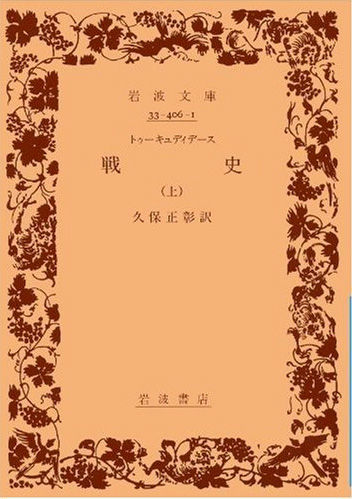
The following reviews show the contents well, and it is easy to understand their position in world history.
A book that can be said to be the most classic of international relations theory, which appears at the beginning of J. Nye's standard textbook 'International Conflict', an authority on international relations theory. This reprint by Iwanami Shoten is extremely welcome.
By the way, Nye, of course, reads this book with a focus on diplomacy, but it is possible to read from a different perspective, and I think that is the fun of classics.
My question was, 'Why didn't Sparta focus on the capture of Athens?' There were three reasons why it wasn't possible. One was that there was no dedicated army. The siege of Athens will take several years. It is difficult to stick the army for that long. However, it may not be the biggest reason because other areas have been conducting military operations including overwintering. The other is diplomacy with allies. Of course, the siege costs a huge amount of money, so it costs money to bear it, to get consent for the Athens siege operation itself, and so on. The last is the issue of logistics. Perhaps the biggest problem of this era was that the cost of 'feeding' the army itself was more difficult than the cost of organizing the army itself. It is understandable given that one of the purposes of the short-term expedition to Athens was the destruction of the fields.
Perhaps this book is still read as 'education' in many military schools today, but what I recall here is that the Japanese military did not miss the idea of disregarding this logistics. (It goes without saying that another important factor is intelligence--intelligence--along with innovation--). Even in the 'Sangokushi', it is clearly shown that the reason why Zhuge Liang failed to capture Wei to the end was the problem of this logistics.
I think that having a broad historical perspective, not just military personnel, contributes to all human beings.
Five stars.
◆ 50: Me and you ・ Dialogue: Martin Buber / Translated by Shigeo Ueda
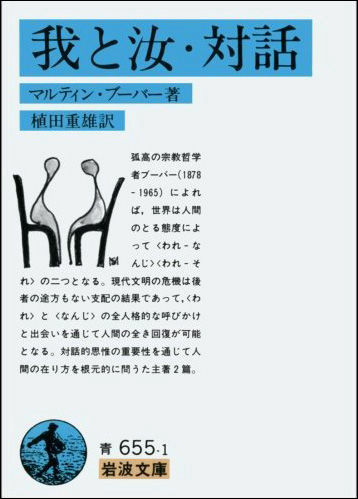
The following review by the Top 1000 Reviewers, ' People grow only through relationships with people, ' is very straightforward.
Buber sees the world as the relationship between each human being and other beings. On top of that, there are two types in the world.
One is the world of [Wa-Nanji], which is a world in which you and your subject are deeply connected, such as relationships with lovers, family members, and close friends.
The other is the world of experience, the world of time and space, and the world of seeking knowledge about the nature of things. The world of [Wow it].
Buber says that humans become [we] through their relationship with [nanji]. It presents a completely different view of the world from the philosophers of Descartes and others who think that humans and the world are in opposition.
Buber, a religionist, says that the relationship between God and humans is also a [we-nanji] relationship.
In addition, modern society has issued a warning to regain the world with [Nanji], saying that it is inevitably designed to fall into the world of [it].
In Japan, the word 'bond' became popular after 3/11, but that is exactly the relationship of 'Wa-nanji'. We can learn a lot from this book.
◆ 51: I Ching <above>: Translated by Shinji Takada and Motomi Goto
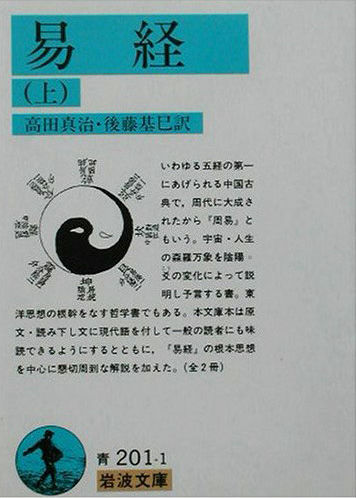
The following reviews simply show the contents.
I was wondering why the I Ching of fortune-telling was included in the Four Books and Five Classics.
I happened to read about I Ching in Jung's book, and I was interested in reading it because it was one of the Four Books and Five Classics.
Jung may have used the term synchronicity to think of it as a connection to the universal collective unconscious, or it may have been called the road in China, but the way of life is how to obey fate. I feel that the hint of is embedded here.
If you read this book, is it really fortune-telling? You can also see how to do it (even though it's Iwanami !!). I try it from time to time, but I get the message that I should live a proper and polite way of life, whether in good or bad condition.
In this book, it is stated that if you become a master of I Ching, you will not be able to make it. I interpret it as a story that a master can live according to his destiny.
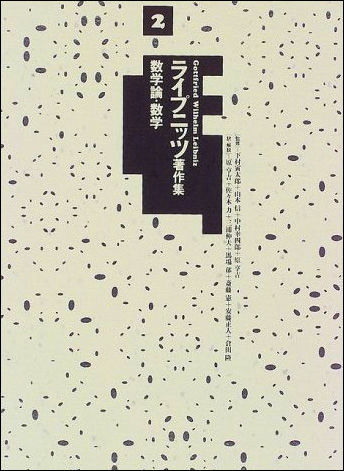
You can tell how great a book is by reading the remarks published in April 1986.
We don't care 'why Leibniz now'. For us, Leibniz is neither a 'now' person nor a 'now' problem. It is a 'person' and a 'problem' anytime and anywhere. The 17th century is said to be the 'era of genius.' Leibniz was the most genius genius of his genius era. Its erudition and transparency are unmatched in the east and west. The publication of the complete works was started in Germany immediately after World War I, but it has not been completed yet, and it will take another 100 years.
(Omitted)
It is very difficult to get familiar with Leibniz's achievements. Not only is the amount of work large and the character special, but it is written in several different languages. Books offered to scholars were written in Latin, conversations with court associates in French, and writings directed to a few intellectuals in their own country in German. If you want to read Leibniz in the original text, you have to speak three languages. If reliable translations are available at will, his achievements will be accessible to more people.
◆ 53: Calvin Christian Remarks (1): Translated by Calvin / Nobuo Watanabe
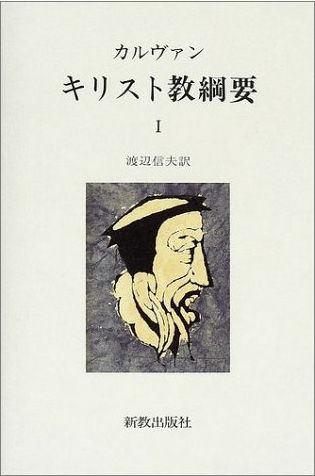
The following reviews simply show what the content is.
According to Calvin, humans were totally depravity, and God was an absolute good absolute. And, according to the predestination, our thoughts and actions do not affect the choice of God, and God chooses those who are chosen by sovereignty and those who are abandoned. When God's grace approaches humans, sinners (humans with sins that have been passed down since Adam) cannot refuse it. Also, those who were saved by God were never set to destruction, but were saved forever. The death of the cross of Christ has infinite power, but only for those who are saved and go to heaven. We must here consider a form of God's persona, the Holy Spirit. The Bible was written by the Holy Spirit. In other words, John and Paul did not write the Bible, but they inspired and wrote what they had to write. However, it does not mean that Bible reporters were automatically written by dictation, but that they must write without destroying their personality. Calvin was an excellent organizational theologian, but when he wrote the Institute of the Christian Religion, he sometimes crossed the Bible. However, his theories such as biblical analogy, dinner theory, the relationship between the law and the gospel, justification theory, schedule and precognition, have developed a theology that is not an exaggeration to say that we are still carried on our shoulders. I am. But writing something like this would make him angry. He is a scholar who values human humility more than anyone else.
◆ 54: Dream Judgment Above: Freud / Translated by Yoshitaka Takahashi
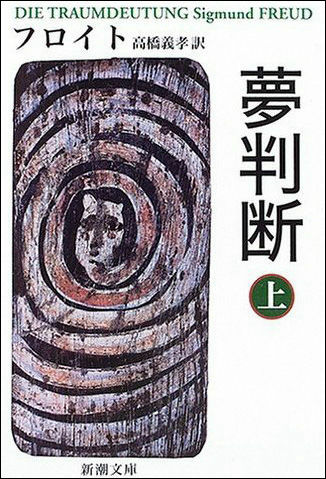
The explanation of the Top500 reviewer ' About the textuality of Freud's dream judgment ' is very easy to understand.
In this book, which is the first volume of Freud's masterpiece, while talking about familiar stories such as 'Dream of Injection of Irma' and 'Oedipus Complex', the dream is fulfilling the desire, and the memory is compressed and moved in the process of creating the dream. It is said that it will be done.
The reason why the library has a volume of 400 pages, although it should be enough to have dozens of pages if only the explanation of such reasoning is extracted as an introductory book, is preceded by Freud himself, his family, and the case of the patient. This is because there is a huge reference to research and literature. Freudian psychoanalysis can be said to be the process of understanding the unconscious mechanism of the person being analyzed, but in fact, the cases of Freud himself, his family, and patients described in this book are various until the present day. 'Rereading' continues. Such reading comprehension has a very high affinity for literary / textuality, which may be one of the reasons why Freud's theory continues to have a widespread influence on literary criticism and philosophy. And, in that sense, such literatureism and text are constructed in the style of this book, which is composed of logic while referring not only to 'Oedipus rex' but also Shakespeare, Goethe, Dode, Zora, etc., and relentlessly quoting and criticizing previous research. It is interesting that the sex was built in from the beginning.
In the last part of the first volume of this book, we explain the compression theory by considering the dream idea (latent content) and the dream content (explicit content) separately, and explain the strange coined words that often appear in dreams. (Actually, I've lived for 40 years and never dreamed of coining a word.)
'The state of the dream compression work is most apparent when this work chooses words and names for the object to be compressed. Dreams often treat words like things. Words experience a synthetic effect similar to the representation of things. ”(Page 382)
Freud's interest rushes into the linguistic action in his dreams around this quote, but when I first came into contact with Freud through the structuralist Lacan, I was close to Saussure linguistics, which separated Signifian and Signifie. I felt the sex and it was very interesting. (The story around that will expand to imagination / representation in general in the second volume.) It is undeniable that the first one, where citations and criticisms of previous research continued endlessly, was boring (laughs), but such difficulty in reading. I think that it will be interesting if it exceeds. In the latter half of the first volume of this book, dreams of falling from a high place, dreams of failing an exam, dreams of being naked only by yourself, and other familiar 'al-al' dreams are analyzed.
◆ 55: Kabbalah
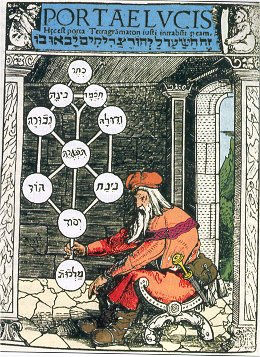
According to the explanation of 'idea' on Wikipedia, the contents are as follows.
Kabbalah considers the creation of the world as the process of a ten-step outflow of holiness from the god Ein Sof, and interprets that the final form of that holiness is this material world. This process is shown by a symbolic diagram called the Tree of Life (Sefiroto), which consists of 10 'spheres' and 22 'small diameters', and the attributes of God are reflected in that part. Therefore, although Kabbalah is a monotheistic religion, it has a world view close to polytheism and pantheism.
Another interpretation considers this world as a book. To decipher this book, where everything is written, is to understand everything in this world. And the book is written in 22 Hebrew letters, each of which symbolizes the element that is the principle of the universe. Therefore, deciphering the Hebrew alphabet is an important key.
He also uses a mystical interpretation to interpret the seemingly contradictory description of the Old Testament from Bible infallibility. As an example, the scene of human creation appears twice in the Creation at the beginning of Genesis. Philologically, this is thought to be a contradiction caused by the integration of different myths into one book, but in Kabbalah it is interpreted that human creation was actually performed twice (or more).
◆ 56: Leviathan <1>: Translated by T. Hobbs / Hiroshi Mizuta
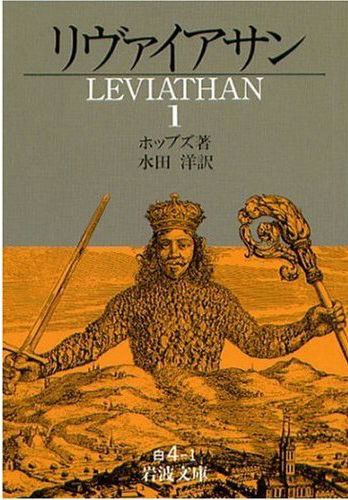
As the title suggests, the Top500 reviewer's review, 'If it's a hassle, read from Chapter 13' is pretty accurate.
'Reviasan' is probably a must-read for social sciences, and a classic in the classics, but the author Hobbes's writing is strangely analytical, without humor or wit, and is really boring. You can say that.
Moreover, the content introduced in textbooks as Hobbes's political thought is concentrated from the latter half of Part 1 to the first half of Part 2, so unless you are particularly interested, do not read the latter two books. I personally think it's okay.
In the Iwanami Bunko version, the first to fourth parts of the text correspond to the first to fourth volumes, respectively.
Up to Chapter 12 of Part 1 is a review of the philosophy of the time, such as epistemology, semantics, and value theory. The so-called 'Hobbesian' political thought and social contract theory will not appear in earnest until Chapter 13.
People are equal by nature, and because of that equality, hostility is born, and the 'struggle against each person' becomes a natural state. However, human beings also have 'fear of death' and need wisdom to survive. Therefore, people are willing to abandon their rights and conclude a social contract according to the rules for coexistence (natural law) discovered by 'reason.'
Most of the rest of Chapter 14 is devoted to the details of 'natural law'. The argument around here is pretty sloppy and uncoordinated, but in summary, Hobbes, after all, the heart of natural law is 'to others that you don't want to do to yourself.' Don't do it. ' It's a really easy-to-understand political idea (laughs)
In the detailed discussion of theology in Part 3 and Part 4, Hobbes also puts the clause of faith into the very simple proposition 'Jesus is Christ.' So, as I said at the beginning, it's not interesting, but for a long time, it's a very easy-to-read book if you keep the main points down.
The point of Hobbes's idea of 'natural law' is to secure the right of 'self-preservation', which is the most basic right of nature, that is, to establish 'peace'. The point is that the rules that you think you should only follow are called 'natural law'. It is not a rule directly set by God as in rock.
(Continued to Part 2)
◆ 57: The logic of scientific discovery: Karl Popper / Yoshikazu Ouchi, translated by Hiroshi Mori
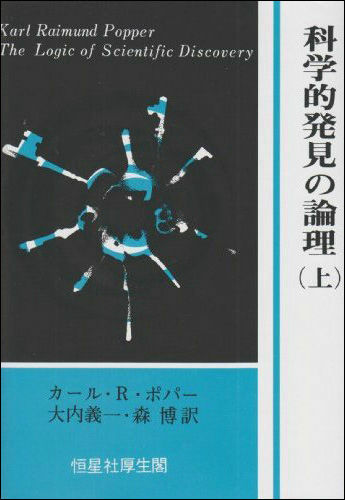
The summary section in the review below by the Top 1000 Reviewers is the most helpful.
The following outline
The view of trying to capture science in an inductive way is common in the world.
But this view is wrong.
The principle of induction may certainly work as a matter of human psychology, but it has nothing to do with the principle of science at issue here.
No matter how many simple propositions (individual cases) are collected, a universal proposition cannot be derived from them.
However, universal propositions can be refuted by simple propositions (existence propositions).
For example, the universal proposition 'all crows are black' is refuted by the existence proposition 'some crows are white'.
This is a deductive method and a reliable method.
Focusing on this asymmetry between universal propositions and existence propositions, it is possible to realize science centered on deduction.
That is the science of the counter-evidence test.
A theory (universal proposition) is tested by a test, and if it can withstand the test, the theory survives for now.
If disproved, consider another hypothesis (theory) and test it.
This is what science should be.
Therefore, an irrefutable theory cannot be called science.
Such a theory is a matter of metaphysics.
In this way, the line between science and non-science is drawn.
The more rigorous the theory is, the more room for falsifiability, and therefore the better the theory is, the more it can withstand the test.
On the other hand, it is not a good theory to vaguely expand the theory and narrow the room for falsification.
In addition, it is a true appearance as a scientist to give an excuse and blame when disproved.
Scientists should be allowed free research, always recognize that theory is a hypothesis, and repeat falsification.
I agree with falsifiability as the axis of science, at least one of them.
This is because irrefutable theories form a system by themselves and cannot be included in the system of science.
However, although I agree with Popper's argument against the principle of induction, I think that inductive guessing is valid.
Certainly, if we allow induction as a principle, we can find any number of cases that are convenient for a certain theory, and we cannot call it science at all.
However, if it is a guess rather than a principle, it seems to be indispensable to Popper's science of falsifiability.
First, Popper states that science should deal only with reversible experiments (above p55), but this idea of reversible shows that inductive guesses hold true.
Second, in order to abandon the disproved theory and derive the prediction from the test-tolerated theory, one must assume the identity between the past test and the present prediction, which is an inductive guess. ..
In addition, it is necessary to assume uniformity in order to eliminate the hypothesis that is presented in the Glue paradox, such as 'until time t is ... and after time t is-'. be.
Therefore, Popper's theory of falsifiability seems to be consistent with inductive guessing.
◆ 58: Self-reflection record: Marx Aurelius / Translated by Mieko Kamiya
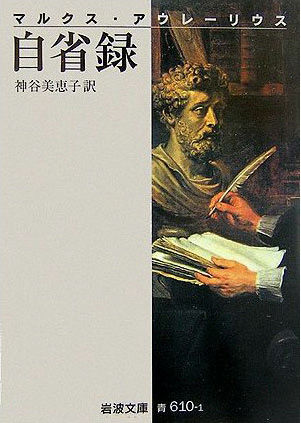
Written by Marcus Aurelius, one of the Five Good Emperors of the Roman Empire, who was called the 'Emperor of the Tetsujin', in the explanation, 'This book was written under quiet meditation, but to the author's fierce humanity. The pursuit of this is seen. Since ancient times, it has been read most often and encouraged countless people. ”The following reviews explain it in an easy-to-understand manner.
Here are some excerpts that I like. Thinking about buying
I hope it will be helpful to those who are interested.
Chapter 4.3 'People seek a place to stay in the countryside, coasts and mountains. You too
There is a habit of enthusiastically admiring the place where he was. But this is all very mundane
It's a way of thinking. Because you always pull in yourself whenever you want
You can stay in it. In fact, wherever you are, your own
You will never find a peaceful and quiet hideaway in your soul. child
In the case of, the mind becomes completely peaceful as soon as you stare at it.
Especially if you have something to bring with you.
~ Abbreviated below ”
Chapter 4 19 'The human being who is thrilled about fame after death thinks about the following:
There is no such thing. That is, each of the humans who remember him, as well as himself, will soon
He died, then his successor died, burned up and disappeared.
Memories about him were handed over one after another like a torch, and finally
That the whole memory of is disappeared. ~ Abbreviation ~ Anyway, you are now a gift of nature
Ignore things, miss the time, and be obsessed with what others will say in the future
I'm doing it. 』\
Chapter 8 47 'If you suffer for some external reason, it's the one that bothers you.
It's not the thing itself, it's your judgment about it. ~ Abbreviation ~ If you
If you're suffering from not doing what you think is healthy, so much
Why not take that action instead of suffering? 'But difficult to overcome
Disability (harm) is lying down. Then don't suffer, take that action
It's not your fault that it's not there. 'But live without it
It's not worth it. Then leave life. What you want to do
With a well-meaning heart like a dying person, and at the same time, a disability
Leave with a gentle feeling for the sword (harm). 』\
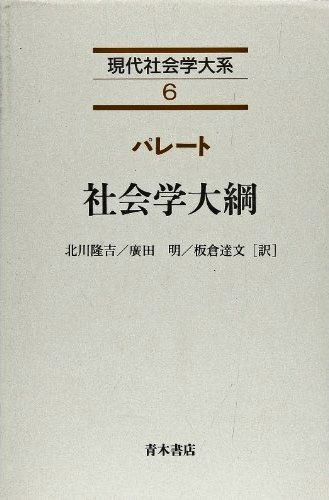
The following reviews show the nature of this book in a way.
While browsing this book, I couldn't help but feel the power of V. Pareto's bottomless imagination and analytical intelligence. Numbered discussions are bulleted discussions rather than one-themed papers, and as many say, there is duplication. However, they are duplications that Pareto emerged in the process of pondering the subject, and are not in any way to complain. It seems that Pareto's attention was drawn to the extent that he was caught in that object. You should read this book carefully, but the depth of the content cannot be measured by just reading it once. Political science, no, the essence of human beings appearing in politics and their dynamics are analyzed in detail, and the templates of economy and society, the characteristics of national character, and above all, the essence of civilization are written in a row!
◆ 60: New Science <1> (Series / Universitas): Giambattista Vico / Translated by Tadao Uemura
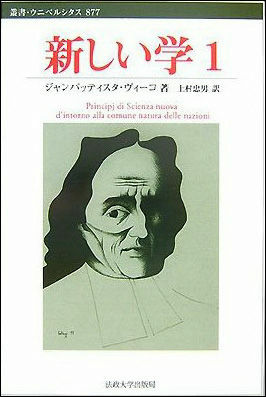
The contents of Hosei University Press are simple and easy to understand.
'Since the world of nations or the world of national institutions has been created by humans, the principles can be found in the aspects of our human intellect itself,' he insists in the field of humanities. Vico who brought <Copernican Revolution> to.
◆ 61: Old Testament

There are many famous stories such as the creation of heaven and earth, the first murders of Cain and Abel, Noah's Ark, the Tower of Babel, and the Ten Commandments.
◆ 62: Novum Organum-New Institution: Bacon / Translated by Juichi Katsura
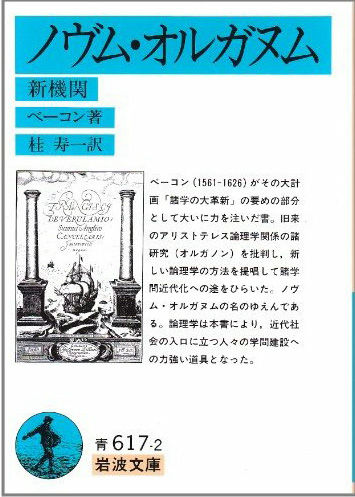
The following review, 'A book that can be read more in the modern age of confusion, ' explains the content in a fairly easy-to-understand manner.
Bacon expressed his thoughts in the form of a stack of short sentences called aphorism. This is because he criticizes the way of thinking itself, which is to accumulate logic.
Bacon criticized deductive thinking, saying that humans can only know what they have directly observed or experienced.
He gives a critical view not only on the logical development of human beings, but also on the direct sense of human beings themselves. This reveals a basic skepticism about the existence of human beings, which is peculiar to Britain, which is similar to Hume later.
Fanatic thought is never born from such thought.
Bacon criticizes not only the issue of thinking style, but also the tendency of the time when Christianity had a strong influence, which did not allow a critical view.
The problem he clarified in this book, the prejudice of each of the so-called four idols: human nature, individuality, social life, and false rules of argument, still applies today.
I think this book should be read more in order to reexamine the reality in front of us from the beginning in modern Japan, where the way of thinking and perspectives so far are reaching their limits. ..
◆ 63: Iliad and Odyssey
Ilijada <above>: Homer / Chiaki Matsudaira

The following review ' Battle of the Gods ' should be quite inspiring to read.
An epic that deals with the Troya War. It depicts the battle between Greeks such as Achilles and Agamemnon vs. Hector, and Asians such as Paris. So to speak, it is also a story that tells the battle with different civilizations. Also, in the battle of the human world, gods such as Zeus, Athena, and Aphrodite participate in the battle of humans and fight the gods.
It has the aspect of. The unique words and actions of Agamemnon, Achilles, Hector, Diomenes, and the quarrels and battles of the gods make the story even more interesting. The depictions of battles and feelings are also unique, and it is a real feeling to read.
Homer Odusseya <below> (Iwanami Bunko): Homer / Chiaki Matsudaira
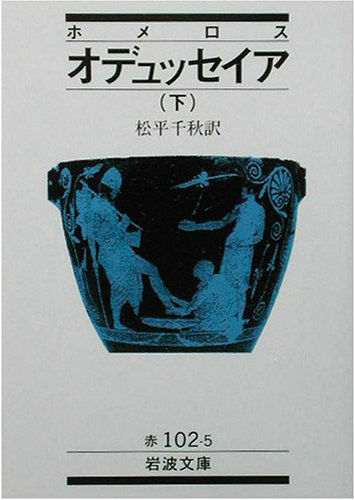
You can see from the commentary in the review below that the content is very interesting to read.
An epic by Homer, an ancient Greek poet of the 9th century BC.
The story of Odysseus, a Greek hero who went to the Trojan War for 10 years around 1200 BC. The original title means 'Poetry of Odysseus'. After winning a long war in Troy, the hero Odusseius departs for his hometown Ithaca, but suffers a number of hardships on his way home due to the wrath of Poseidon, the sea god. After being swept away by an unintended island, he fought against the Kikon people, ended up fighting the first giant Cyclopes, and became a captive of a witch. After all, he drifted around for 10 years.
On the other hand, in his hometown Ithaca, Megohime Penelope is waiting for her husband to return. Although his son Telemachus has grown into a fine young man, his family is occupied by those who marry Penelopeia, who is (believed to be) a widow. It is being prodigal.
After overcoming the hardships and returning to Japan after 20 years (10 years of war + 10 years of exile), Odusseius, a brave man, joins forces with his son Telemachus and defeats these unreachable suitors.
◆ 64: On Liberty: John Stuart Mill / Translated by Etsunori Saito
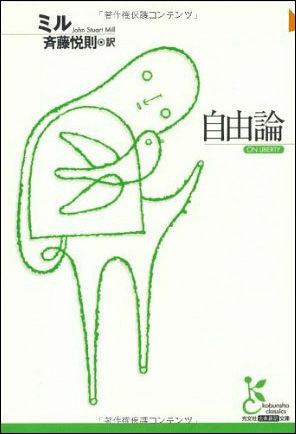
To what extent can interference with individual freedom be tolerated? Why should dissenting opinions be respected? Why is it desirable to be a 'strange person'? The white eye of British empiricism, which fundamentally considered individual freedom in civil society and emphasized its importance. The most radical book that modern people must read now.
◆ 65: Babylonian captivity in the church
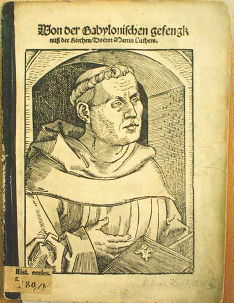
The content of Wikipedia's ' Babylonian Captivity in the Church ' is very well organized, and it is clear that it was a book that symbolized an important event.
In this book, Luther sheds light on the seven sacraments of the medieval Catholic Church.
For the sacrament, for example, he argues that ordinary believers can also contribute to the sacrament wine, affirming that the blood and flesh of Jesus Christ is truly present there, but the idea of transubstantiation. I rejected it. He also denied the teaching that the sacrament was a sacrifice to God.
Regarding baptism, Luther also states that justification occurs only when it is associated with the belief that is protected among the baptized people ('sola fide'). However, there is an opinion that this would save even those who could later fall.
It was also said that the essence of the confession lies in the words of promise (forgiveness) after being heard with faith. Only the three sacraments, 'communion,' 'baptism,' and 'confession,' linked to the sacred decree and the sacred promise of forgiveness, can be treated as sacraments. Moreover, strictly speaking, it is only the sacrament and baptism with 'material signs stipulated by God.' In other words, it is bread and wine in the sacrament, and water in baptism. Luther does not recognize the other four sacraments ('marriage,' 'ordination,' 'confirmation,' and 'final oil') in this book.
In this article, Luther considers the following three to be 'captivity': First, the wine in the 'Lord's Supper' was taken up by the general congregation, second, the teaching of 'Transubstantiation,' and third, the Roman Catholic Church made Mass a spiritual fellowship with Jesus, not. Rather, it is preaching that it is a memorial service.
◆ 66: On the Origin of Species <above>: Charles Darwin / Masataka Watanabe
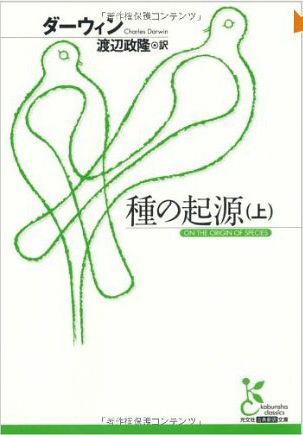
The following reviews touch on the contents, are easy to understand, and give you a glimpse of this famous book.
A new translation of a masterpiece that has changed history. Compared to the conventional translation, which is a long and difficult-to-understand original text, the translator's ability to concisely divide and present the original text based on the knowledge of biological science clearly conveys its true value to the reader. The first volume is up to Chapter 7 'Instinct' out of all 14 chapters.
As he said at the beginning, 'I don't know anything about the laws governing heredity,' Darwin, who didn't know the existence and structure of genes, or even the 'Mendel's laws' of the same era, was able to observe. It conveys the process and greatness of drawing conclusions only with insight. Moreover, it is astounding to have been aware of some traits transmitted from parent to child, the existence of natural mutations, special functions of reproductive organs, and the importance of cumulative action under the above-mentioned conditions. It is clear that the 'survival struggle' in a broad sense is also considered based on abundant cases. By extrapolating these, it can be said that the structure that introduces the concept of 'natural selection', which is the core of this book, in Chapter 4 is also skillful. It is also worth noting that the core (= genetic mechanism) of the advantages of androgynous organisms is intuitively approached. In addition, the occurrence and penetration rate of mutations (new species) in the population, the formation process of extremely complete and complex organs such as the eye, and whether the target of selection is an individual or a species (Darwin is an individual level theory). It can be seen that the problem was also taken into consideration.
On the other hand, Darwin's caution and consideration can be felt in the area where Chapter 1 begins with 'Mutation in captivity'. I think it was easy to understand that I started with the story of breeding of animals and plants, and I think it was intended to alleviate the shock of the reader in view of the impact of my theory. In particular, since the creationism by God is a theory that confronts head-on, it is inevitable that there will be opposition and repression from the religious world, and I think it was difficult to deal with this. I felt once again that it was a monumental work that influenced not only biological science but also the ideological world, religious world, world view, and social science.
◆ 67: On the Revolution of the Sky: Copernicus / Translated by Kenichi Takahashi
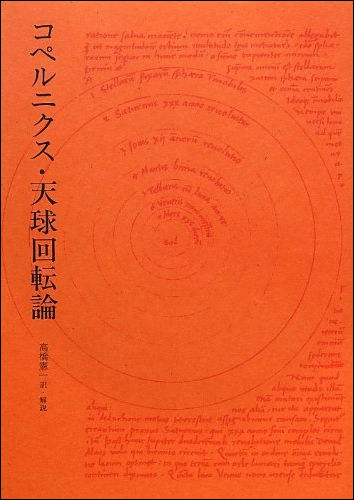
The explanation by Misuzu Shobo is very easy to understand.
《Educated readers, in this newly born and just-published book, you will get stellar and planetary movements that have been improved by ancient and modern observations and prepared by novel and amazing hypotheses. In addition, a very convenient astronomical table is available, which makes it quite easy to calculate movements at any time. So buy it, read it, and have fun. 》 (Introduction to Copernicus)
On May 24, 1543, his freshly printed main work was delivered to the Polish shrine council member Ecolaus Copernicus, who was on the dying floor. This book, entitled 'Geocentric Theory,' establishes the cosmology = sun-centered theory (heliocentric theory), which is in direct opposition to the Aristotelis-Ptolemy-style earth-centered theory (geocentric theory) that was dominant throughout ancient and medieval times. It was the trigger for the historical event of the 'Scientific Revolution' and the book of the revolution that heralded the dawn of modern times.
◆ 68: On War <above>: Carl von Clausewitz / Translated by Takichi Shimizu
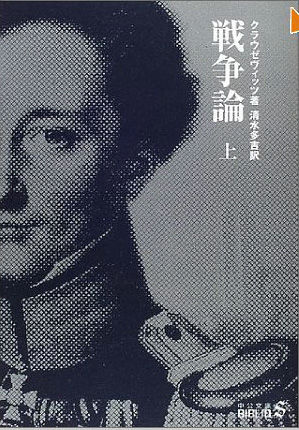
A review by top 10 reviewers and Hall of Fame reviewers, ' One of the Historical Works, ' accurately describes the content.
'The whole war presupposes human weaknesses, and we pay attention to these weaknesses.' 'Only those who make the right policy can surprise.' It is true that there are many esoteric and connotative expressions, such as the speech by former Fed Chairman Grin Span. It's not a book that anyone can read. However, the explanation is cold and logical, and therefore only round and long. Therefore, if you get used to that point, it will be even easier to understand.
However, although it is a masterpiece that has been loved by military personnel around the world for a long time, it is, frankly, old, according to the common sense of the times when weapons of mass destruction and high-tech weapons were widespread.
On the other hand, the point that 'boldness can be easily exerted if a rational purpose is added' is not limited to war, but rather may be useful for businessmen. In fact, 'knowledge necessary for senior military personnel can only be obtained through special talented consideration, that is, research and contemplation.' 'Critique is the application of theoretical truth to actual cases.' Or, the definition, positioning, and significance of strategy and tactics are not limited to the military.
It's not a simple book, but it's a book that sometimes makes you want to correct your posture while reading it.
◆ 69: Outline of Pyrrho Philosophy: Sextus Empiricus / Yahei Kanayama, Mariko Kanayama
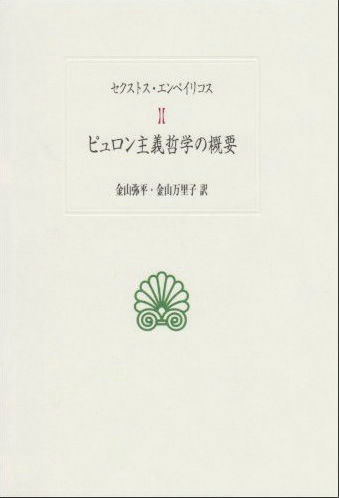
The commentary on 'About this book' in ' Sextus Empiricus' Overview of Pyrrho Philosophy '-King King's Reading Itinerary-Yahoo! Blog ' clearly shows the character of this book.
This book is one of the few books that outlines Pyrrhoism written by the Pyrrhoist himself, Sextus Empiricus, and is a very valuable material by itself. In addition, since this book has a structure that refutes other philosophical denominations, it is also a valuable document in a double sense because it gives an overview of other philosophical denominations at that time.
This book was translated into Latin and published in Europe in the 16th century and became an exceptional bestseller at the time (not to mention typography is one of the three major Renaissance inventions). It can be clearly seen that this book had a great influence on modern philosophy after the 17th century centered on epistemology.
◆ 70: Plutarch Heroes <above> (Chikuma Gakugei Bunko): Plutarch / Translated by Kentaro Murakawa
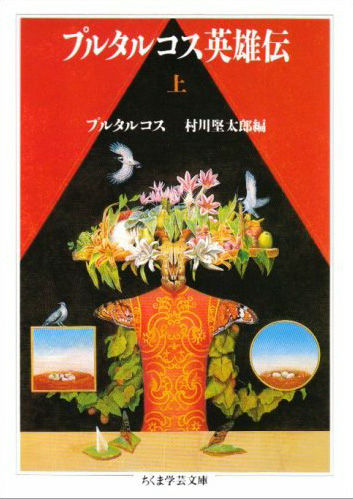
Plutarch, the highest priest of Delphin, was the 'last Greek' who enjoyed the peace of Rome while nostalgic for the glory of his homeland. This book is the definitive edition of an easy-to-read re-edited classic history book that was widely loved by posterity, depicting the heroes of Greece and Rome vividly.
◆ 71: Panse: Pascal / Translated by Yoichi Maeda and Ko Yuki
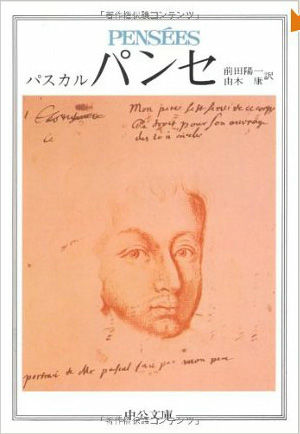
The following reviews explain the content fairly well and you can see how famous the book is.
The too famous phrase 'human beings are reeds to think about' is impressed by knowing before and after it.
Amplify endlessly. Let's listen to Pascal's words for a while.
'Human beings are just one reed, [the reed] is the weakest in nature, but
It is a reed to think about. ...... Even if the universe crushes humans, humans are still more than those who kill themselves
It will continue to be noble. Because humans die, and the universe
Because I know that it is better than humans. The universe doesn't know anything. '
That's not the only place to read. That discussion of 'Pascal's wager' is also in this text.
Will be deployed. The insight that nature is nothing but artificial is wonderful. Implicitly
If you turn the page, you'll find too straightforward and too sharp aphorisms here and there.
Thinking of death Memento mori.
The words that madness and genius are a single piece of paper are just right for Pascal. While pouring the anguish of fresh blood
A life that ran through oneself with wisdom to the point of honesty, proclaiming superiority over the universe, exactly
With that knowledge.
A moving masterpiece that condenses such anguish, loneliness, and ephemeral hope.
◆ 72: The Phenomenology of Psychology (above): GWF Hegel / Kinshiro Kashiyama Translated
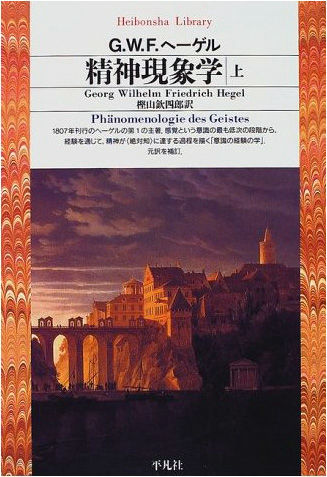
The content is simply shown in the following review, ' Awareness on the Path of Despair.'
The first volume contains an introduction, an introduction, A-consciousness, B-self-consciousness, and C-reason.
While consciousness goes through the 'path of despair,' that is, in the face of denial,
It describes in detail how it develops into true knowledge.
◆ 73: Logical Philosophy: Wittgenstein / Shigeki Noya Translated
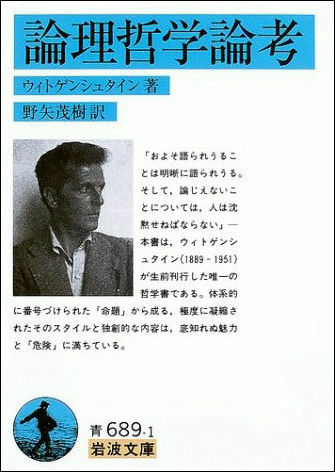
'What can be said can be said clearly, and what cannot be argued must be silenced.'-This book is the only philosophical book published by Wittgenstein (1889-1951) in his lifetime. be. Its extremely condensed style and original content, consisting of systematically numbered 'propositions', is full of endless charm and 'danger'.
◆ 74: The Pilgrim's Progress: John Bunyan / Translated by Toshio Ikeya
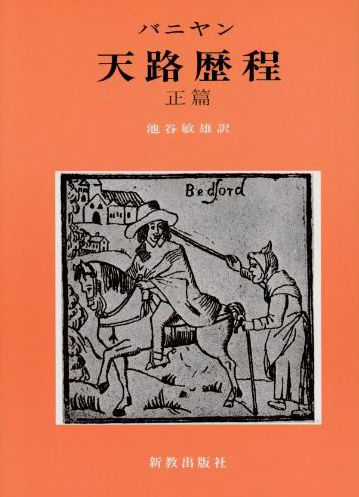
A masterpiece of 17th century Puritan literature. A masterpiece that is said to be 'read after the Bible.' A complete translation of the 'The Pilgrim's Progress', created by the devout faith and spirituality of the author John Bunyan (1628-1688). The appearance of a person who travels in search of salvation and eternity while suffering from the burden of his own sin will have to awaken the soul of modern people.
The story is described in ' Tenji Journey ' on Wikipedia.
A man named Christian who lived in the 'City of Destruction' went through various difficult situations such as the 'City of Void' and the death battle with the destroyer Apollon, and became the 'City of Heaven.' It is in the form of a record of the journey to reach.
◆ 75: Pragmatism: W. James / Translated by Keizaburo Masuda
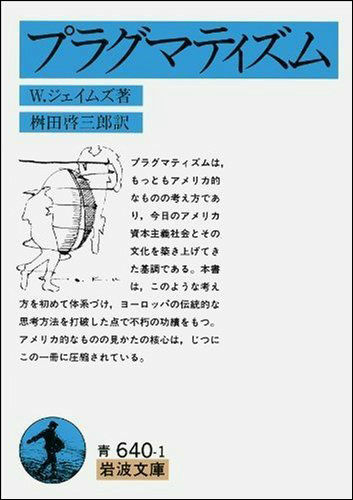
A review called 'American Philosophy' touches on the content as follows.
The author, William James (1842-1910), is one of America's leading philosophers. The title 'pragmatism' literally means 'pragmatism', but as the name suggests, it is a collection of useful things from the Western philosophy of the past. As is well known, in order to organize the history of philosophy, it is basic to classify it in a dualistic manner such as rationalism and empiricism, but the author considers one of them to be based on the 'principle' and intellectualism. It is said that it is extreme to lean toward one of these dualisms, citing principles, idealism, etc., and empiricism, sensualism, materialism, etc., with the other being based on 'facts'. So to speak, we are trying to pick the best of both worlds. At the bottom, the human character is mixed and contradictory, and the intuition that 'principles' and 'facts' are inseparable in the field of pragmatic life seems to work. However, if we dare to say 'dualism' to this philosophy, it is undeniable that there is a place where we dislike abstraction and take concrete steps. It is also true that it feels unsatisfactory for those who seek an abstract deepening of thinking.
Even so, it is an American philosophy.
◆ 76: In Praise of Folly God: Erasmus / Kazuo Watanabe, translated by Takashi Ninomiya
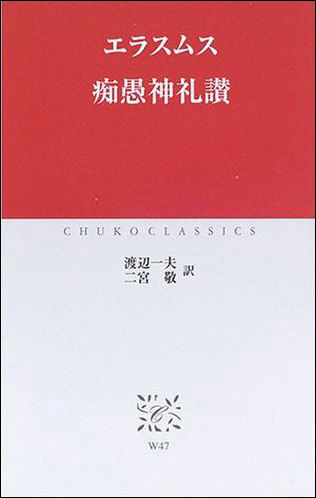
The contents are detailed on Wikipedia.
Moriae, the goddess of foolishness, holds a big speech in front of the audience, satirizing the ridiculousness and unfolding folly of human society with biblical legends, voluminous quotations from Greek and Roman classics, and vertical and horizontal epigrams. That is. The filthy goddess thoroughly pulls down the royal aristocrats, priests, theologians, grammarists, philosophers and other authorities with a light and stylish narrative, and the power of foolishness is at the root of human activities. He praises himself as a philosopher, saying that he is happy if he is stupid.
Moria, the goddess of foolishness, is a Greek word meaning 'foolishness' and 'madness,' and is associated with the Latin name Morus of More More. This book is dedicated to Thomas More.
For some reason, the item 'Praise for the Fool God ' in Uncyclopedia is also very helpful in a sense.
◆ 77: New translation The Prince: Niccolo Machiavelli / Translated by Ren Ikeda
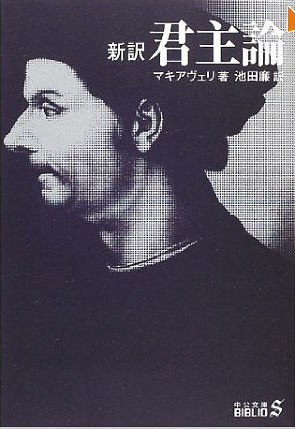
The review by the top 10 reviewers, ' Why don't you touch the wisdom that was treated as a forbidden book by the Catholic Church?' Is easy to understand.
'The majority of human beings in the world will live with satisfaction if they are not deprived of their property and honor.' 'In general, human beings judge only by seeing rather than touching them. 'Human beings are inclined to the nature they were born with and cannot leave it.'
Written about 500 years ago, it is a historic masterpiece that has been treated as a temporary forbidden book due to the wrath of the Catholic Church and has finally begun to be read properly in the 19th century. No wonder. 'Because fate is a goddess, if you want to conquer her, you have to beat her up and push her away.' 'Territorial desire is a very natural desire.'
Due to changes in the times, there are some parts that cannot be easily applied to social descriptions. However, if you look closely, you will be reminded that the essence of human beings has not changed even if the times change.
On the other hand, Machiavelli's The Prince is quite active. The ill-advised attitude strongly warns, aligns himself with the changing times, and encourages preparations as 'all big projects are accomplished only by the hands of those who are seen as stingy', and the end of the war. Do it, and start to melt.
Although there are many unpleasant wise sayings, the reason why a certain kind of pleasant after-reading feeling remains is that it clearly points out the essence of human beings, and while pointing out the stupidity of the world and people, it is positive without despising it. It seems that the intention to turn to energy is bleeding. It's timeless and worth a read.
The explanations and translations are polite, and I am grateful that you can buy it for less than 1,000 yen because it is a paperback size and does not take up space.
◆ 78: Principal-Mathematical Principles of Natural Philosophy: Isaac Newton / Translated by Saruto Nakano

Wikipedia's ' Mathematical Principles of Natural Philosophy ' outlines the content.
The original text is written in Latin. There are 3 volumes in total, and the titles and main points of each volume are as follows.
Volume 1 About the motion of an object
The law of motion of an object in a vacuum
Volume 2 About the motion of an object
The law of motion of an object in a resistant medium
Volume 3 About the system of the world
It deals with the mathematical mechanism of the real universe, and its position can be explained uniformly by the mathematical law of universal gravitation, whether it is an object on the earth, a planet that orbits the sun, or a comet. It is shown that.
In principle, Euclid's Elements is used as a mathematical tool throughout the entire volume. Furthermore, the format of development follows the 'elementary theory' and adopts the official theoretical format. It is a method of first showing an axiom and then proving it using that axiom.
At that time, I tried to explain using only Euclidean geometry as much as possible without using differentiation and integration, which had begun to be studied, so it is a very large work. It is presumed that this is because they were in conflict with Prussia's Gottfried Wilhelm Leibniz et al. In terms of their content (absolute time) and notation in terms of differentiation and integration. Newton and Leibniz often had radically different views on both time and space, and clashed violently (see also the article on space). However, it is not that there are some places where algebraic analysis is used.
◆ 79: Psychological type: Jung / Toshio Kawai, translated by Hirotsugu Yoshimura
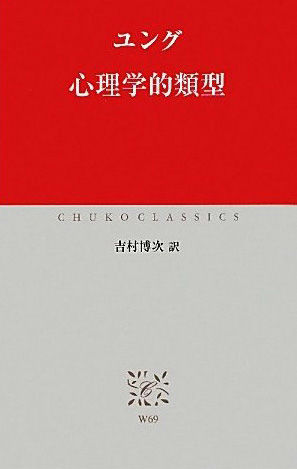
' Kazunori Tomano Blog (Introduction / Explanation of Philosophy / Pedagogical Masterpieces): Jung's' Psychological Types ' ' is a fairly easy-to-understand entry that explains the contents of 'Psychological Types' in detail.
By the way, the 'psychological type' depicted in this book is not a so-called 'unconscious' level type, but a consciousness level type.
Needless to say, Jung is also famous as a person who advocated 'collective unconscious'.
At the unconscious level, one has a 'collective unconscious' that has been shared since ancient times. Jung insists so. Especially in the latter half of his life, Jung devotes himself to exploring such an unconscious world, but 'consciousness' level research was also essential for Jung for mutual understanding of the people.
In this book, you can enjoy Jung's excellent thinking, which goes back and forth between the conscious world and the unconscious world in a well-balanced manner.
◆ 80: Mao Zedong Glossary: Mao Zedong / Minoru Takeuchi
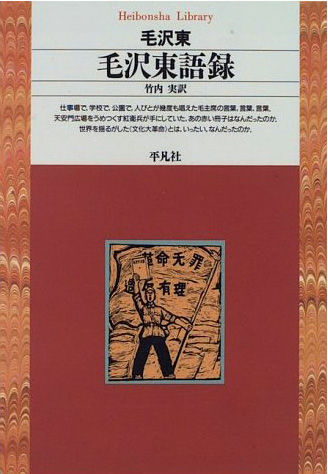
At the beginning, there is a page written horizontally that says 'Unite the Proletariats of the World!', And the 'Table of Contents' of ' Quotations from Chairman Mao --Wikipedia' is very easy to understand.
1. Communist Party
2. Class and class struggle
3. Socialism and Communism
4. Correctly handle contradictions within the people
5. War and peace
6. Imperialism and all rebels are papier-mache tigers
7. Bravely fight, dare to win
8. People's War
9. People's army
10. Guidance of party committee
11. Mass routes
12. Political work
13. General relations
14. Military relations
15. Three major democracies
16. Education and training
17. Serve the people
18. Patriotism and internationalism
19. Revolutionary heroism
20. Employment founding country
21. Self-rehabilitation, struggling
22. Thought method and construction method
23. Research
24. Correct the wrong thought
25. Unity
26. Discipline
27. Criticism and self-criticism
28. Communist Party
29. Executives
30. Youth
31. Ladies
32. Culture / Art
33. Learning
◆ 81: Qur'an (Quran)

It is a 114-chapter Islamic scripture, and the content of Chapter 1 'The Quran ' is very famous.
The original Arabic and its translations are as follows.
1: 1 بِسْ مِ اللّهِ الرَّحْمـَنِ الرَّحِيم
Bismillāhi r-raḥmāni r-raḥīm
The highest mercy in the name of God.
1: 2 الْحَمْدُ للّهِ رَبِّ الْعَالَمِين
Al ḥ am du lil lāhi rabbi l-'ālamīn
All gratitude is to Allah, the god of the world.
1: 3 الرَّحمـنِ الرَّحِيم
Ar raḥmāni r-raḥīm
Allah has the highest mercy,
1: 4 مَـالِكِ يَوْ مِ الدِّين
Māliki yawmi d-dīn
Ruler of the Last Judgment Day.
1: 5 إِيَّاك نَ عْبُدُ و إِيَّاكَ نَسْتَعِين
Iyyāka na'budu wa iyyāka nasta'īn
We worship only you and seek help only from you.
1: 6 اهدِنَــــاااقِّرَاיَ المُستَقِيمَ
Ihdinā ṣ-ṣirāṭ al-mustaqīm
Guide us all on the right path.
1: 7 ¿
Ṣirāṭ al-laḏīna an'amta'alayhim ġayril maġḍūbi'alayhim walāḍ ḍāllīn
Not in the way of those who have been given your anger or lost your way, but in the way of those who have been given your grace.
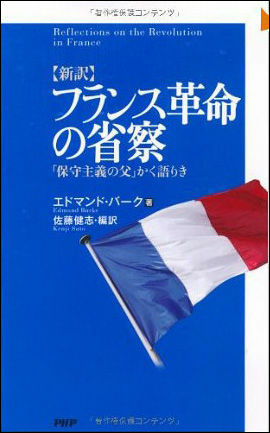
The following outline, which is written in Wikipedia's ' Reflection of the French Revolution', briefly shows the contents.
The second half predicts how the revolution will follow, and the final part states that 'France must go through a reincarnation that should be purified by fire and blood before seeing the final settlement.' There is.
◆ 83: Theory of Relativity: A. Einstein / Translated by Ryo Uchiyama
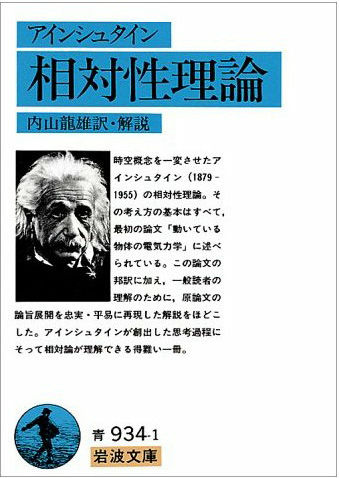
The following reviews explain and explain not only the content but also the surrounding matters and prerequisite knowledge.
A dissertation with only 24 pages has changed the world unknowingly. It broke the fixed view of human space-time. It has been since the beginning of human history, and the physical worldview is completely different before and after Einstein. In 1905, a conservative paper entitled 'Electrical Mechanics of Moving Objects' was published in 'Annalen der Physics' by a 26-year-old adolescent. Since Galilei, no, even before Galilei, humans have been looking at the sky with a very common sense. Ptolemy would have read the stars as the souls of humans far away, and thought that the heavens were full of spirits. However, the natural philosopher Aristarchus applied the theorem of geometry to derive the size of the earth surprisingly accurately in ancient times. In ancient times, only Aristarchus believed that the shining star was a burning star for some reason, like our Sun. At least in ancient Greece, only this one calm man stares at the sky and shows an understanding of the same direction as modern times. However, he did not have the advanced mathematics tools or precise measurement techniques. The Christian worldview of the Middle Ages ousted the legacy of Greek natural philosophy, and even in the early modern period, the stars and the universe were regarded as symbols that govern the fate of the nation and human beings. In fact, Johannes Kepler was an astrologer, and Isaac Newton was an even more mystic. It seems that only Galilei was a relatively common sense and an experimenter.
For a long time, this world has been thought to be a common-sense world to which our everyday sensations are adapted. The speed can be added and piled up as much as you want. This is a very normal human feeling. Because the natural environment and extent in which we live proves that. Are the fish that live in the water really conscious of the water? .. At best, in an era when fast things are horses or SLs, the relativity of moving object velocities does not become a problem in daily life. The Danish astronomer Römer measured the speed of light that Galilei failed, using the speed of light, which was thought to be infinite at the time, using the eclipse of Jupiter's satellite. The numbers he derives are surprisingly good choices as approximations. Like Aristarchus, Romer seems to have been a really smart man. In this way, after a long time, preparations for the emergence of special relativity are in place. Then, a young Einstein appears. Special relativity starts from two principles.
(1) assumes that the relativity of motion, that is, if we are moving in a certain direction at 300 km / h, the person watching it is moving away from us at 300 km / h. By saying that it is not a mistake, everyone would be convinced of this principle in words, but at the time of the announcement, few people could understand the physical meaning accurately.
(2) is that the speed of light is set to the limit of speed. At that time, I was confused because I didn't know what the medium that conveys light was. Therefore, a virtual entity called ether was conceived as a virtual medium for transmitting light. Michaelson conducted a clever experiment to detect this virtual entity. The earth is rotating at a speed of 1660 km / h. At this speed and the speed perpendicular to the axis of rotation, I thought that there would be a difference in the speed of light under the substance called ether. If even the slightest difference could be detected, special relativity would not have come out. However, the difference in speed was not detected no matter how many times it was done. There is no ether. Michaelson had no choice but to declare: Special relativity is a consequence that can be derived from these two assumptions.
It is 'time delay under the speed of light', 'mass increase', and 'bonding formula of matter and energy'.
Prior to Einstein, Dutch physicist Hendrik Lorentz had mathematically reached relativity through Lorentz transformations, while Poincaré and Fitzgerald of England had reached the entrance to special relativity. It is said that if Einstein's paper was delayed, they would have created special relativity themselves. Special relativity can be understood mathematically if the quadratic equation can be manipulated. However, physically, an experimental background was indispensable to get there.
◆ 84: Nation <above>: Plato / Translated by Norio Fujisawa
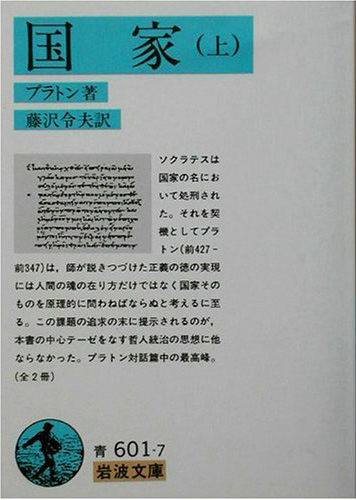
The review 'On Parade of Extreme Theory ' conveys the atmosphere well.
A common prejudice against classics is that 'the classics may have been a groundbreaking claim at the time of their announcement, but today they are common sense and stale.' Read this book and you'll see how wrong that belief is.
This book is an on-parade of extreme theory from the beginning to the end. 'Only philosophers (scientists) have the power to see the truth, so the nation should be governed by philosophers (scientists).' You should be separated from your immediate family so that you don't know who is who's child, 'or' The value of fiction should be evaluated solely in terms of its impact on society. So, fiction that is harmful to youth should be thoroughly cracked down. Anyway, radical claims continue. If someone blogs the same claim now, it's all about burning. This book was written about 2400 years ago, but its controversial nature has not changed since then. That's why it's a classic.

Hayek's main work, which continued to be criticized, slandered, and slandered without reading. Neoliberal classic. A controversial work that argued that Keynesian policy was the path to fascism (totalitarianism) as well as Nazism, Stalinism, and socialism in Britain during the Second War. The idea of advocating freedom and the market is said to have been passed down through time and influenced Thatcher, Reagan, and even Koizumi's structural reforms.
◆ 86: The definitive second sex <1> Facts and myths: Simone de Beauvoir / Takako Inoue, Nobuko Kimura
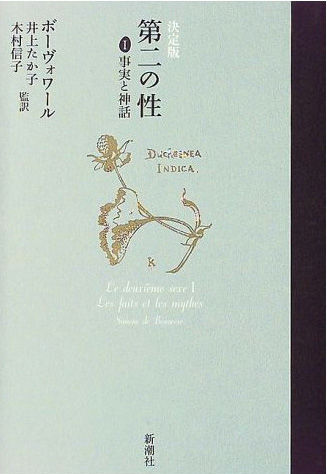
The following reviews by top 100 reviewers and Hall of Fame reviewers are easy to understand.
The author Simone de Beauvoir was the unmarried wife of JP Sartre. As a high school student at a boys' school, I read this book when I was a high school student and was quite shocked. In the female theory that begins with the descent of 'People are not born to women, they become women', is it that women are changing their original self in order to become the image of a woman that a man has? Was the biggest surprise for me as a man.
Then, isn't the feeling of an original woman different from that of a man?
With uncertain feelings, I am now the parent of each boy and girl. When I look at my daughter as a parent, I can certainly feel that my alter ego is trying to become a woman, as Beauvoir says.
Rather, it may be a book that men should read.
◆ 87: Structure of Scientific Revolution: Thomas Kuhn / Translated by Shigeru Nakayama
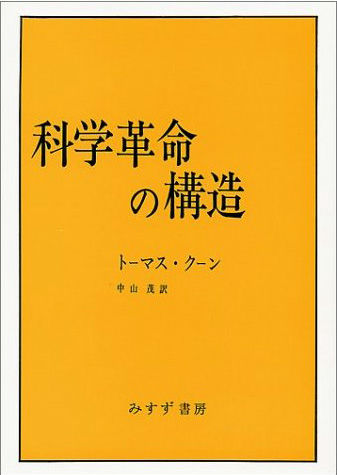
What is progress in science? How will the change in the world view occur?
Using the concept of 'paradigm' as a weapon, this book sharply analyzes the undeveloped theme of 'scientific revolution.'
It gives a new perspective to the history of science from Copernicus to Bohr.
A paradigm is a work that is widely accepted by people.
It provides scientists with an example of how to ask and answer nature for a period of time.
Breaking down this paradigm as a framework of thought,
Introducing a different perspective on nature is nothing but a revolution.
The author says.
It is a book of problems that has received a great deal of attention as the sociology of science and the psychology and ethology of the scientific community.
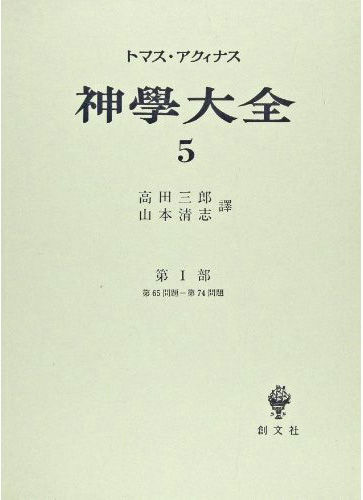
Wikipedia's commentary ' Theological Encyclopedia ' is easy to understand what kind of book it is.
The characteristic of 'Theology Taizen' is that the contents described separately in 'Sentences' (Sentences) and 'Commentarium' used in theology at that time are organically classified and systematically arranged. It is in the process of being redone. In other words, the words of the Bible and the words of the Church Fathers and theologians are reorganized in an easy-to-understand manner. In addition, it incorporates the results of discussions and interpretations that were actively conducted at schools and universities attached to the Bishop's Cathedral in the Middle Ages.
◆ 89: Generative grammar scheme: Noam Chomsky / Naoki Fukui, Mihoko Zushi
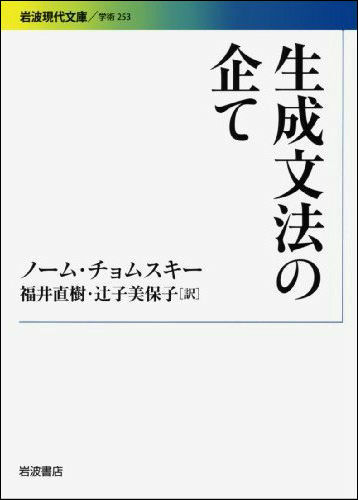
The following reviews quote the content and it is easy to understand what kind of book it is.
This book is a collection of interviews with Chomsky.
Chomsky as a political activist is rarely mentioned directly, and the topic is mainly about generative grammar.
The following are some of Chomsky's words that impressed me.
'Because I am too busy with various activities ... I have little interaction with any other (academic) field' (p. 56).
'We are just going in the wrong direction, and sooner or later that may come to the surface' (p. 100).
'(In the field of linguistic history) my own research has been really incredibly distorted' (p. 115).
'The kind of research I am doing has always been of interest to only a handful of people in this field' (p. 125).
'In the United States ... even though it could be constructive and creative research ... it has been plucked in this area' (p. 131).
'I don't study any language other than English because I'm not familiar with any of them' (p. 204).
'Grammar must actually exist. In other words, there must be something in the brain that corresponds to grammar' (p. 254).
'Brain science ... the content of general theory is scarce at this stage .... No one even knows if brain science is looking at the right thing' (p. 367).
Even such a prominent scholar is worried that his theory is misunderstood and states that he is a minority.
There were many surprising claims, such as stating that creative research is difficult in the United States.
I'm not sure what the fate of generative grammar is, but frankly, I'm sure I felt a sense of familiarity with Chomsky.
◆ 90: Translated by Laozi Note-Translated by Laozi / Ichiro Koike
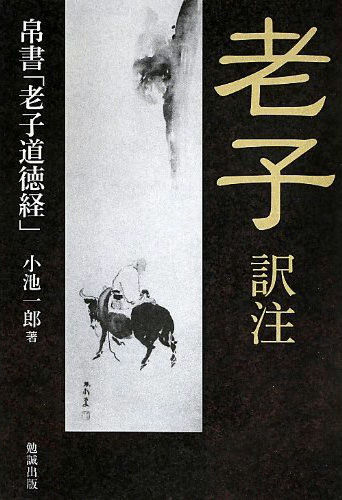
As for what is written, Wikipedia's Tao Te Ching is detailed.
Arihito Omichi (Jinyoshi appears only when the great 'road' is abolished.)
Wisdom De Yudai (There is a great deception when wisdom is taken away.)
Six-parent discord Aritakaji (Father, mother, uncle, uncle, aunt, and aunt's six parents are touted for filial piety and mercy only when they are not on good terms.)
Sadaomi Kuniya (Only when the nation is confused (there are many vassals who agree with the emperor's opinion), the vassal who frankly gives up on the emperor will be recognized.) (Morality Chapter 18)
'A general who is good at war is not influenced by emotions. A general who has good military art and can always ensure the best victory does not do the war itself. People who are skillful in using people are humble and humble. This is a 'non-conflict' that does not contend with anything, it is a knack for using the power of people, it is a policy that considers the heavens, and it is the political idea of the saint prince (good luck, angry, good victorious enemy). A good servant, a so-called warrior, a so-called warrior, a so-called servant, Kono Gokuya) ”(Chapter 70)
'Knowing what you don't know is progress, and the accumulation is fine. On the contrary, it is vanity to know something even though you don't know anything, and it comes from the pathology of the mind (knowledge and ignorance). In addition, 'Unknowing Disease' (Chapter 73)
◆ 91: Zaratostra Talking First Volume: Nietzsche / Michio Takeyama Translated

Persian guru Zaratostra returned to humans again, shouting, 'Finally God is dead,' denying religious pessimism, praising the earth in front of the crowd, and affirming 'humans conquer.' I was born and lived to do it. ' This book, which expresses the inspiration of 'eternal return' that suddenly disappeared in August 1881, in the internal process of Zaratostra's rise to becoming a superhuman, was Nietzsche's last territory and was the beginning of existentialism.
◆ 92: A Treatise Concerning: George Berkeley / Translated by Haruhiko Otsuki
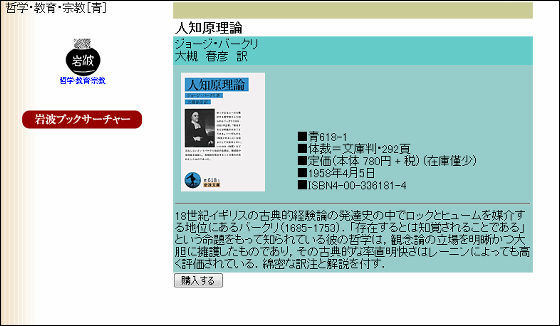
The following reviews written in Amazon's ' Hitochihara Theory (Iwanami Bunko) ' are fairly easy to understand.
The second author of the British Empiric Trio, the main work of George Berkeley.
With the thesis of 'existence is perceived (Esse Perkipi)', we thoroughly attack the 'material' that exists independently of us, the 'thing itself' that lies beyond our perception. To go.
Is it possible that the desk in front of us exists independently of our perception?
'Even if no one is looking at you, or if there is no one in this room, this desk will exist.'
People who say this may imagine (perceive!) The scene where a desk is placed in an empty room.
Whatever you imagine or what situation you think of, what is it other than 'I perceive' and 'appear to me'? There is no world behind the door! ??
Berkeley's argument is straightforward, honest and very readable. I feel that the translation is a little old, but I am grateful for the politeness of the notes that make up for it.
◆ 93: A Treatise of Human Nature <Volume 1> About Intelligence: David Hume / Yoshinobu Kiso
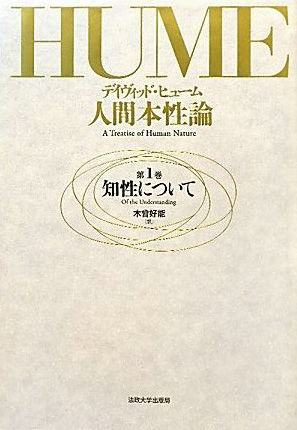
The contents of this philosophical book are explained in detail in Wikipedia 'Human Nature Theory'.
Hume points out that human perception is divided into impressions and ideas, and impressions include powerful stimuli such as emotions, sensations, and emotions, and ideas are merely images that do not involve emotional movements. Ideas and impressions are closely related, simple ideas are derived from simple impressions, and impressions are the basis for creating ideas. Impressions can be divided into sensory impressions and reflection impressions. The former appears in human psychology due to the cause of the road, while the latter is expressed by ideas. Therefore, Hume argues that the idea is that the impression first stimulates the senses to make humans perceive comfort and so on, and keeps it in mind even after the impression disappears. This allows the idea to make the impression reproducible, to remember known events and to imagine unknown events. Imagination brings about the complex work of the mind and works according to the laws of three ideas: similarity, approach, and causality. This law is the law of ideas, and as a complex idea according to this law, three ideas of relationship, aspect, and substance are brought to human beings.
◆ 94: Theory of Heat: James Clerk Maxwell
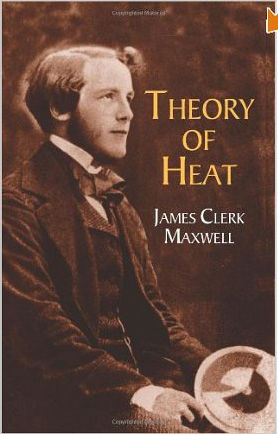
According to ' Theory of Heat | Masterpieces of Natural Science (Classical / Enlightenment) ', the contents are as follows.
'Theory of heat' is a textbook about the heat that is being elucidated.
It is supposed to have been written.
An overview and some translations are introduced.
According to the overview introduced
'Thermometer principle' 'Measurement of heat' 'Mechanics principle' 'Basics of thermodynamics'
'Experimental facts about heat' 'Interpretation of experimental facts'
It is 'applied'.
◆ 95: Referee: Kafka / Translated by Sei Tsuji
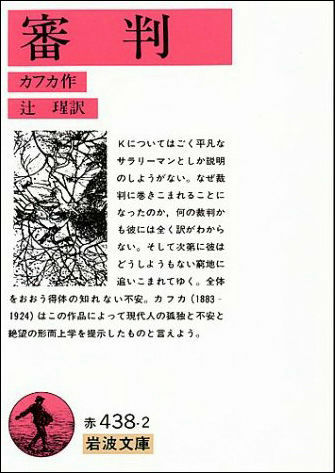
K can only be explained as a very ordinary office worker. He has no idea why he was involved in the trial or what the trial was. And gradually he is forced into a predicament that can not be helped. Mysterious anxiety that covers the whole.
More detailed content is mentioned in the following reviews.
Joseph K is killed last. But the chapter didn't seem to connect with anything else. If so, Kafka's intention can be considered to be more expressed before that chapter, even in terms of the number of pages written. Follow the theory that every line of a novel is just as important, and try not to get too caught up in the ending.
K once turned to a lawyer at the recommendation of his uncle. However, he is disgusted by a lawyer who does nothing but talks and decides to decline. Then he goes to a lawyer and offers that he no longer needs defense. There was a subservient merchant block there. And K tries to fight the proceedings alone. I thought this was the climax.
(This novel is a dreamlike story, a foresight of a dark future, an absurdity, etc., such reading is abstract and separates from the original text.)
After that, the story of the famous 'Gate of the Law' comes out. There is a scary gatekeeper who threatens the man halfway and keeps him out. I received that as a story that made K look after his attitude. It may be the scenery in the heart of a man. After all, the man might not have dared to enter. I think he was thinking about where he would come and where he would come while having dialogues with the gatekeeper.
The novel as a whole feels like a story in which an individual (ordinary ordinary person) pursues something on his own. K is acting without hesitation while considering the surroundings. No one can achieve 100 percent what they think. I presume that K was killed last because Kafka had a realistic experience (mentally) and wrote that part smoothly (maybe my memory mistake, but this). The ending part was written at the very beginning along with the beginning part).
◆ 96: Original translation Upanishads: Translated by Hiroshi Iwamoto

Upanishads is a general term for a group of theological and religious philosophical books written in Sanskrit. These books, which form the basis of Indian thought, were established on the basis of Vedic mythology and ceremonial traditions, but they are different from the Brahmin ceremonial universalism up to that time, and the background of the success of the king at that time. In addition, he developed a philosophy of preaching the unity of all things in the universe, aiming for the search for truth. This book is an excerpt of the main story from the ancient Upanishads dating back to the 4th-8th centuries BC. There, the philosophical thought of 'Tat Tvam Asi', which equates the duality of Brahman and Atman and preaches the fundamental principle of absolute Fuji, and the religion of reincarnation, karma, and commentary that became the foundation of Buddhism, etc. The idea is highlighted.

Wikipedia ' Defending Women's Rights ' is written in a concise and easy-to-understand manner.
Wollstonecraft argues that the true nature of the affection that men have given to women is low, because men have hindered the intellectual improvement of women. Taking the case of Rousseau's beloved Therese, he points out that the weaknesses of women who make their lives dependent on men only create short-term attachments on an ad hoc basis. That is why Wollstonecraft thought that intelligence was needed to improve the intellectually inferior romance that continued with such animal desires. She argues that it is important for men and women to help each other, and that if a man interferes with the intellectual development of a woman, the woman will corrupt the man and liberate the woman. Education is all that is needed to liberate women, and Wollstonecraft seeks an understanding of the content and institutional reforms of traditional national education by listing the appropriate knowledge and virtues given to women. There is.
◆ 98: War and Peace <1>: Tolstoy / Translated by Seiichiro Kudo
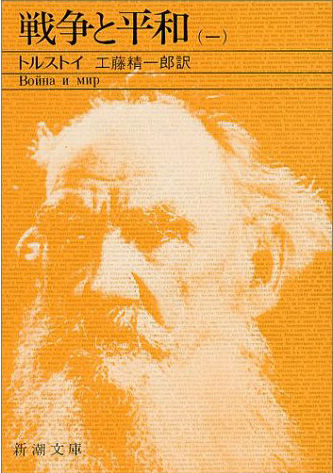
The following reviews are a good example of the content of this famous work.
Isn't this book an attempt to interpret the turbulent Europe of the early 18th century, focusing on the historical facts of Napoleon's entry into Moscow in 1812? It seems that Tolstoy's awareness of the problem was the catalyst for his writing as to why the Europeans, who are also Christians, died in the blood-washing war.
In this book, the glittering fragments of human observation are simply inexhaustibly and evenly scattered. By comparison, modern novels (understanding that they are over-generalized) often use a single fragment as a motif to establish a story. Perhaps the way the story is written has changed, and there may be some overlap with the grammar of the movie, which requires some easy-to-understand message in two hours. It made me think that there is a big difference between a work that is commonly called a masterpiece and a modern novel.
It is a wonderful content as a historical novel, but more than that, it means that it has reached a complicated human psychology such as changes in human priority in normal times and wartime, that is, in extreme conditions, and the duality of good and evil of each character. So, this novel has gained universality. Depending on the situation, the strengths and weaknesses of each individual, which can be good or bad, strong or weak, will be beautifully depicted. And Tolstoy pays attention to the passion that does not intervene in the people, and evaluates its overwhelming power above all else.
Throughout the whole story, Tolstoy criticizes the perspective of a historian who sees the flow of history in the personal passion of Napoleon, and depicts the speed at which the beginning of the war, with its own vitality, rolls in its desired direction. It is unique to Tolstoy, a rare novelist who can look at the two contradictory forces of 'inevitability' and 'freedom' and get a bird's-eye view of the history and human activities that are established on the balance. It's as long as 4 books, but it's not difficult to read.
◆ 99: The Wealth of Nations <1>: Translated by Adam Smith / Hiroshi Mizuta and Chuhei Sugiyama
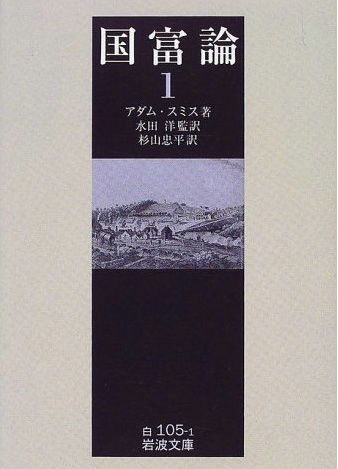
It is a famous book about 'the invisible hand ' and has the following contents.
Published in 1776 by Smith, the father of economics, this book is a timeless masterpiece in the classics, as the first systematic description of economics in theory, policy, and history. This book, which insists on the so-called 'invisible hand' policy of harmonious laissez-faire, is, in substance, a scientific analysis of modern civil society, and all later theories originate here. New translation. (4 books in total)
◆ 100: The World as Will and Representation <1>: Schopenhauer / Translated by Kanji Nishio

The review titled 'I have peeked into the depths of the world that should not be peeked ' is a good review in every sense.
It's been a long time since I read this philosophical book, but I experienced the thrill and excitement that I will never forget.
Of all four volumes, the first volume is an idealistic theory that follows the teaching of Satoshi, with the theme 'The world is my representation' and that the outside world can be known by senses and ideas. It's not that it's original, even if it's just a stone's throw.
The real essence is from the second volume.
From here, the true identity of 'will,' which is one of the keywords, is exposed to the sun.
... When I read this volume (and volume 4), I fell into the illusion of being informed of the secrets of this world that I should never see or hear during my lifetime, and I was stunned by goosebumps. Oops.
The outline (including spoilers below)
... This 'will' is the driving force that drives and changes all natural phenomena, from stones to animals, plants, and humans. As far as human beings are concerned, not only breathing and beating, but also appetite, growth, libido, career advancement, monetary desire, senility and death that come undesirably ... If there. Moreover, with this blind will, he is enthusiastic about the survival of the species but indifferent to the survival and dignity of the individual, forcing the innumerable individuals to live and die continuously and promote the metabolism of the species. The essence of this is libido, which is why, in fact, it is the strongest (though not the whole life) will to live and the desire in desire.
On the other hand, the more conscious human beings are at the mercy of this uncontrollable will, the higher the degree of disillusionment such as broken heart, job loss, and bankruptcy, and the greater the distress (on the contrary). No anguish on stones or plants, these are just faithful and pure servants of the will) ...
In this case, in principle, a school of fish swimming in a lump in the ocean and a school of people heading to the office while making a compulsive sound of shoes at the concourse of the station every morning are the same. As one of them, after all, it's just a stressful puppet ... By the way, I never seriously thought about why I went to work every morning. Is it that the driving force that encourages even inertial acts lurks behind ...
Related Posts:







